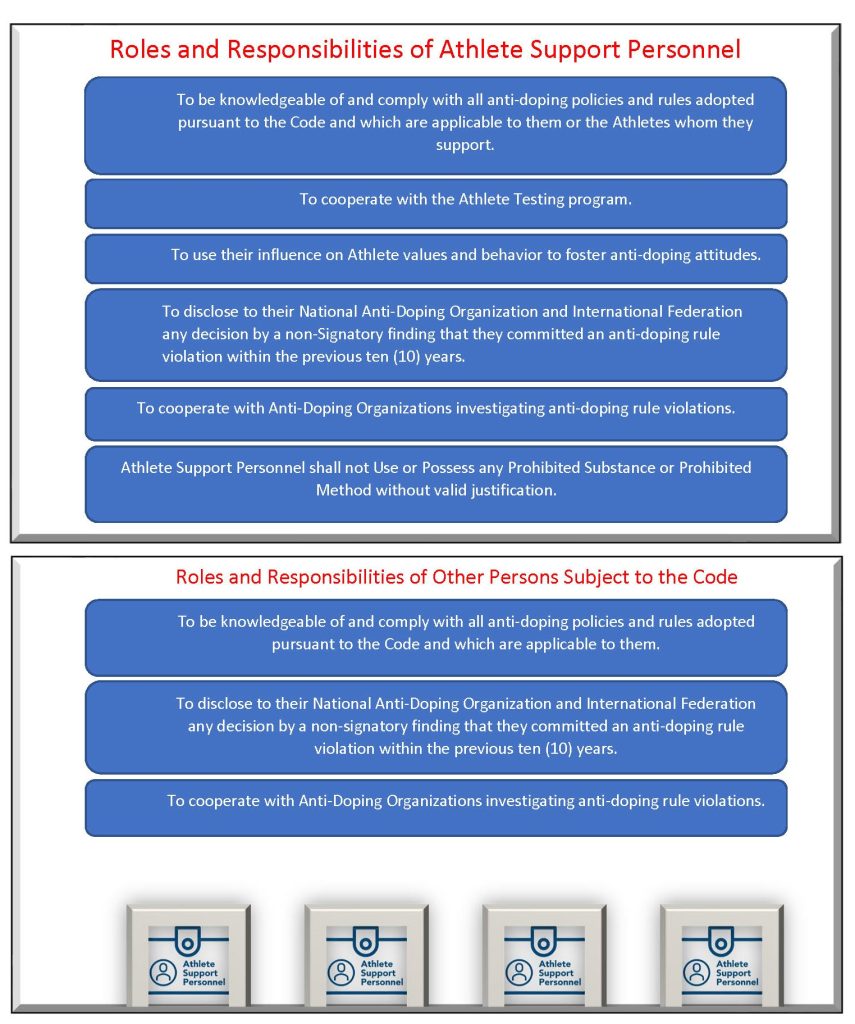Principles and values associated with clean sport
The use of doping substances or doping methods to enhance performance is fundamentally wrong and is detrimental to the overall spirit of sport. Drug misuse can be harmful to an Athlete’s health and to other Athletes competing in the sport. It severely damages the integrity, image and value of sport, whether or not the motivation to use drugs is to improve performance.
Principles and values of clean sport
Anti-doping programs seek to maintain the integrity of sport in terms of respect for rules, other competitors, fair competition, a level playing field, and the value of clean sport to the world.
The spirit of sport is the celebration of the human spirit, body and mind. It is the essence of Olympism and is reflected in the values we find in and through sport, including:
- Health
- Ethics, fair play and honesty
- Athletes’ rights as set forth in the Code
- Excellence in performance
- Character and Education
- Fun and joy
- Teamwork
- Dedication and commitment
- Respect for rules and laws
- Respect for self and other Participants
- Courage
- Community and solidarity
The spirit of sport is expressed in how we play true and at the same time, the use of prohibited substances and methods is also considered a violation of the spirit of sport as well.
Why is anti-doping important?
Anti-doping rules exist for the same reason the other rules and regulations exist, which is to define different aspects of the sport in order to maintain excitement and to ensure fairness on the field of play. All rules and the fact that they are monitored and reinforced are designed to prevent any participant from taking an unfair advantage over another.
The use of doping substances or methods to enhance performance is not only wrong, but are also harmful to Athletes’ mental and physical health.
អប់រំ ផ្សព្វផ្សាយអំពីការប្រឆាំងសារធាតុដូប៉ាក្នុងវិស័យកីឡា ដល់សិស្សានុសិស្សបឋមសិក្សា និងមធ្យមសិក្សា ខេត្តប៉ៃលិន Education of Anti-Doping in sports to primary and secondary school students in Pailin province




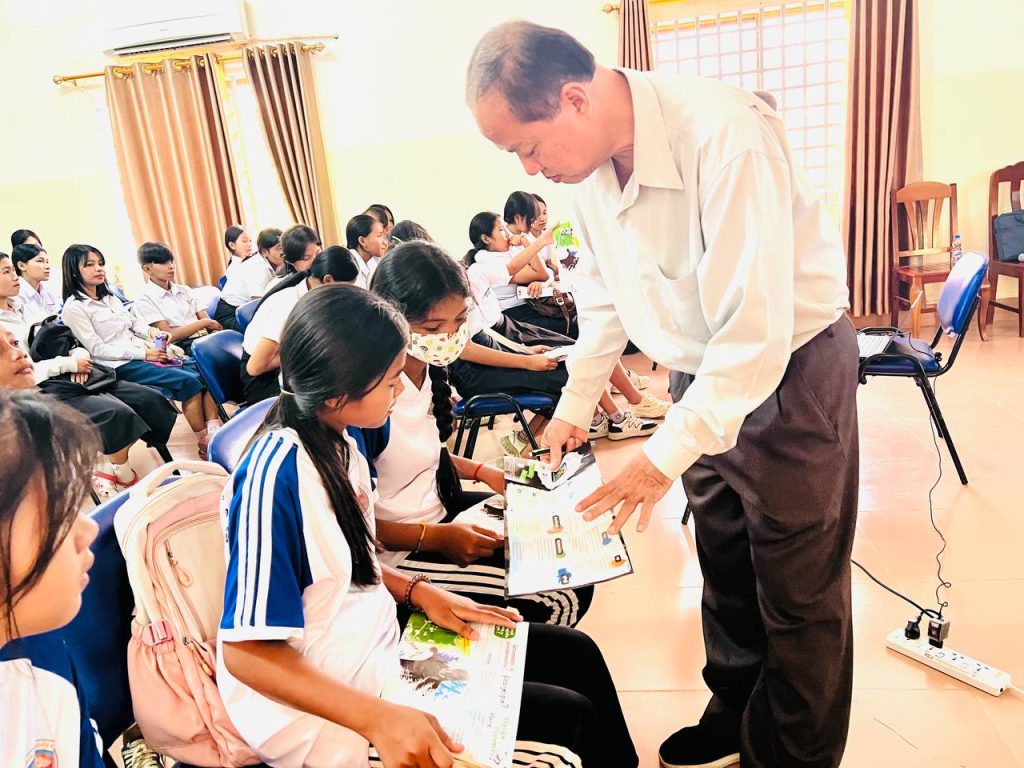
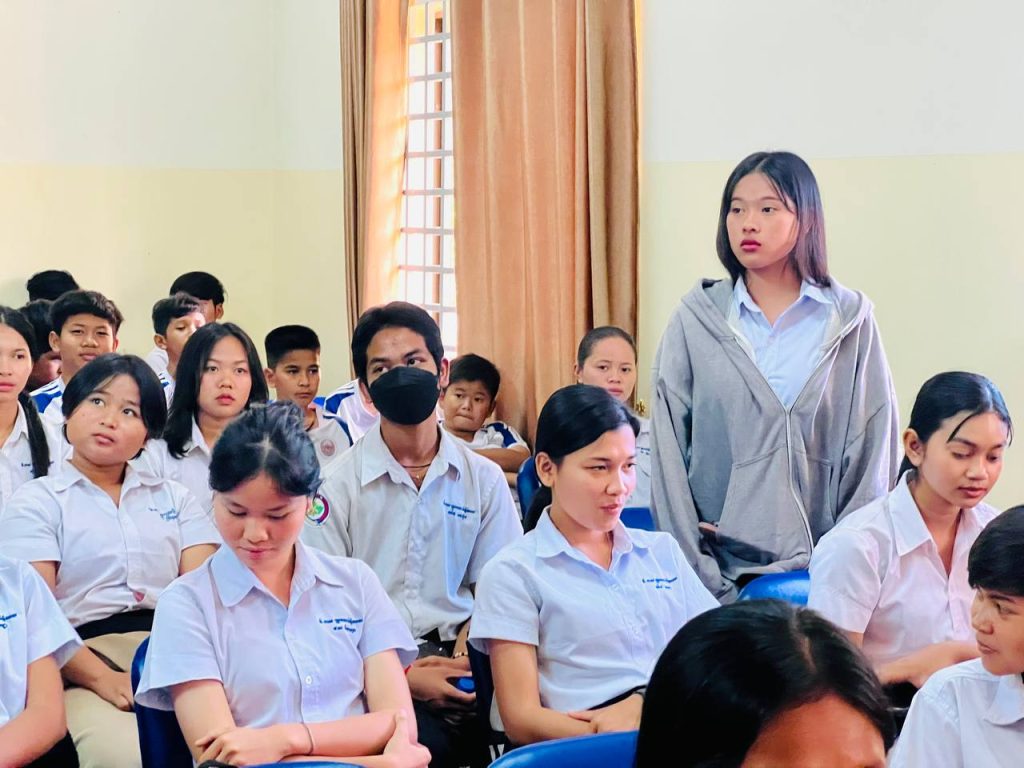
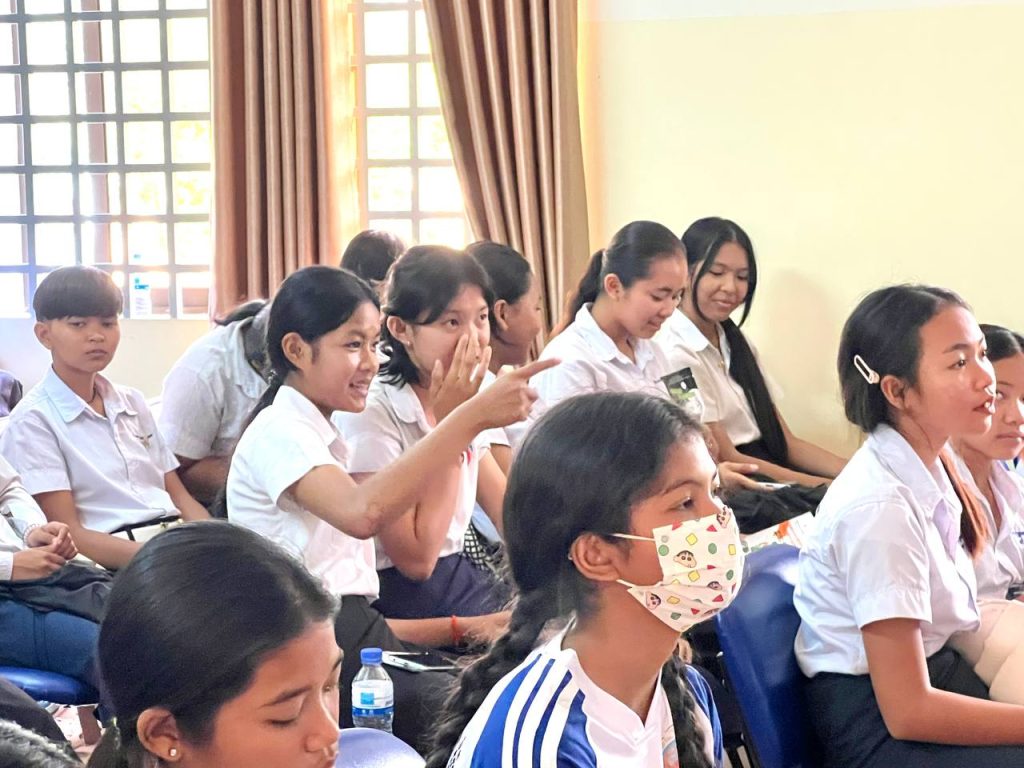
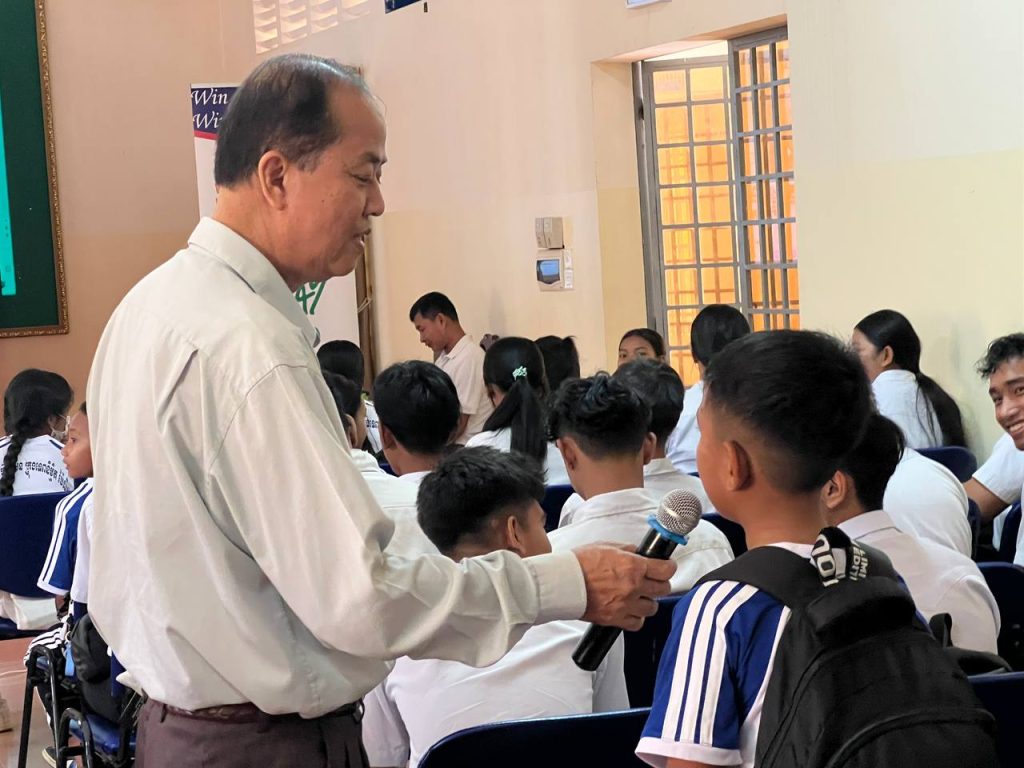
Education and Prevention Tools
The CADA offers different tools and activities to assist teams, athletes and athlete support personnel with education programs that help relay information about anti-doping to target groups with suitable activities. Activities and materials that provide anti-doping information are customized for athletes, coaches, teachers, program officers and team managers, physicians and many others. WADA has created interactive activities such as the Play True Quiz, Play True Youth Quiz, card games, books, videos and many more that explore various subjects and concerns related to the fight against doping in sport.
Outreach program in 3rd National Game






Social Science Research: The CADA, in support of WADA’s commitment to improving evidence-based doping prevention strategies through social science research, aims to initiate more research on the diversity of anti-doping. Understanding the fundamental differences between individuals who choose to complete clean and those who resort to doping and identifying motives for doping – despite being well aware of the harmful effects of doping and anti-doping rules – will assist in ensuring that future anti-doping prevention strategies would be efficient and effective.
The CADA reaches out to all stakeholders to develop an environment of clean sport. This is done by promoting social awareness campaigns that aim to familiarize audiences with clean sport messages and inform about doping in all its forms. The Outreach Program was created to provide stakeholders with tools to deliver awareness activities in communities and various events. This program focuses on creating a positive first experience with anti-doping for all individuals – athlete or non-athlete – increasing visibility at events to enhance one’s understanding and providing an outlet for both athletes and support personnel to engage with anti-doping organization personnel. Questions and concerns can be addressed, and positive attitudes and behavior can be integrated and promoted.
Anti-Doping Education Face to Face with dancing Athletes


Play True Quiz.
WADA’s Play True Quiz is an interactive computer game with 10 questions that test the knowledge of anti-doping. https://quiz.wada-ama.org/
Anti-Doping E-Learning (ADEL): The Anti-Doping e-Learning platform (ADEL) offers access to all topics related to clean sport and anti-doping. It offers courses for athletes, coaches, doctors, administrators and anyone interested in learning more about anti-doping and protecting the values of clean sport.Link: http://adel.wada-ama.org/
Social Science Research: The CADA, in support of WADA’s commitment to improving evidence-based doping prevention strategies through social science research, aims to initiate more research on the diversity of anti-doping. Understanding the fundamental differences between individuals who choose to complete clean and those who resort to doping and identifying motives for doping – despite being well aware of the harmful effects of doping and anti-doping rules – will assist in ensuring that future anti-doping prevention strategies would be efficient and effective.
Social Science Research: The CADA, in support of WADA’s commitment to improving evidence-based doping prevention strategies through social science research, aims to initiate more research on the diversity of anti-doping. Understanding the fundamental differences between individuals who choose to complete clean and those who resort to doping and identifying motives for doping – despite being well aware of the harmful effects of doping and anti-doping rules – will assist in ensuring that future anti-doping prevention strategies would be efficient and effective.
Education Pool Activities
17/02/2024
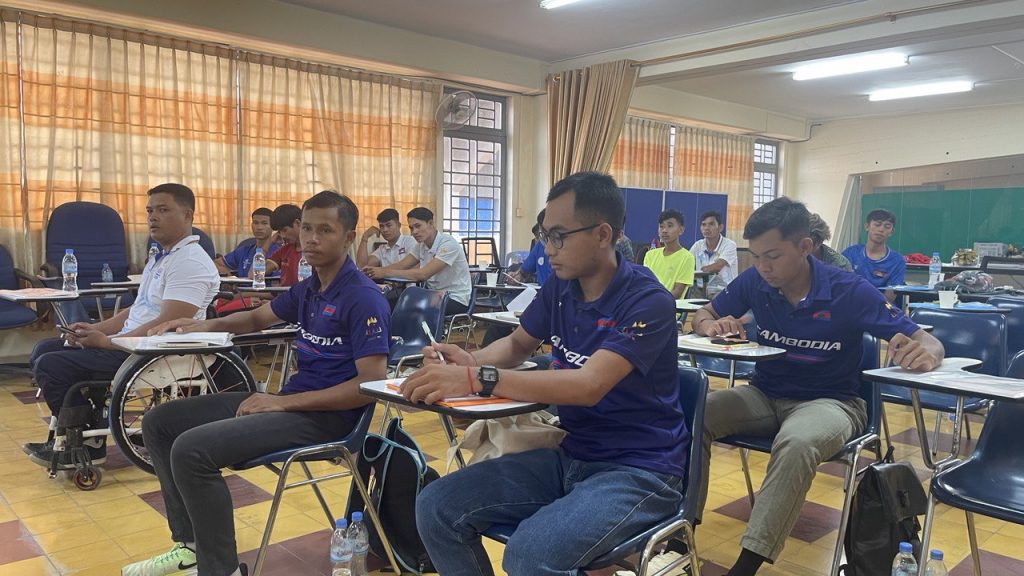
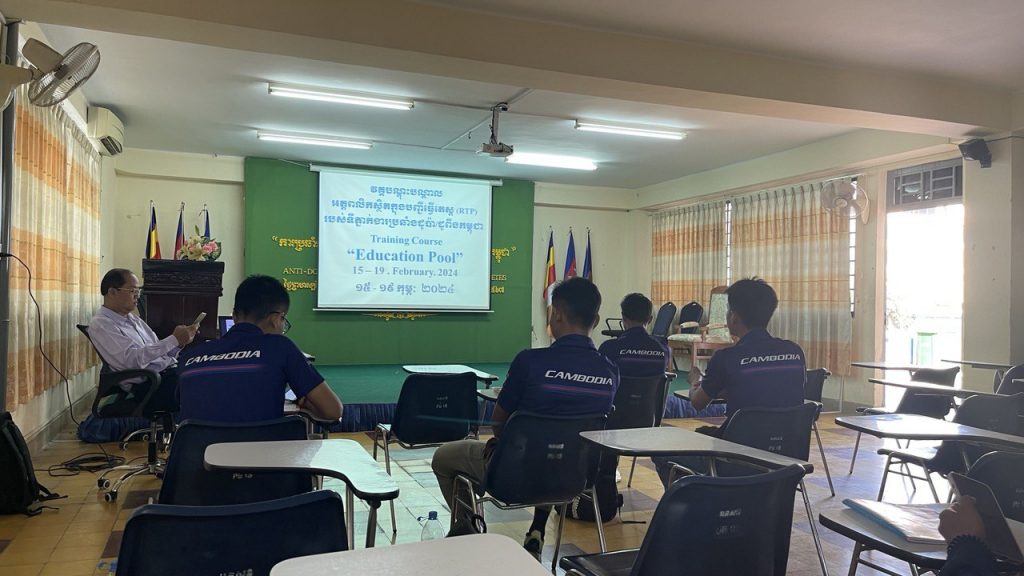
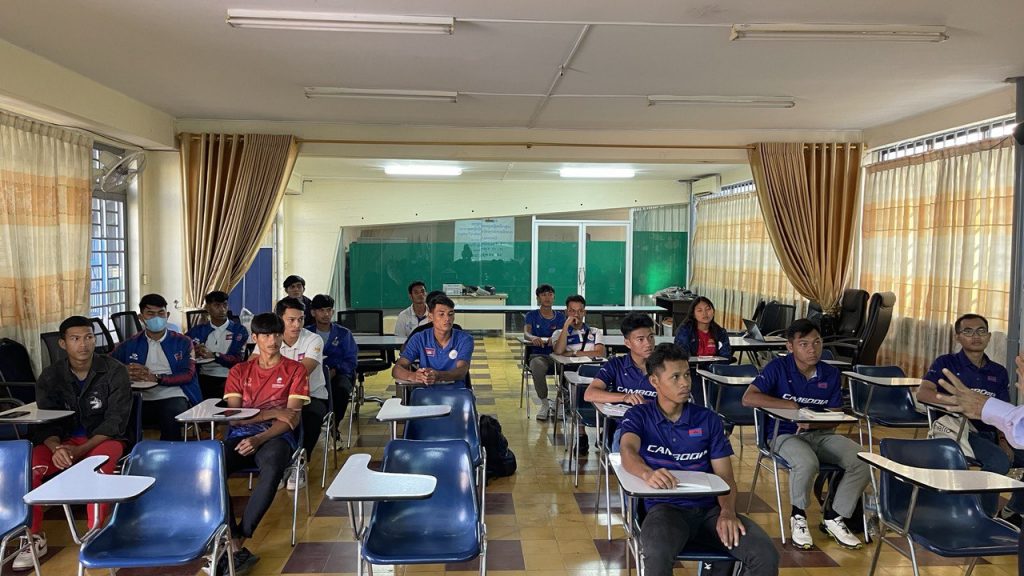
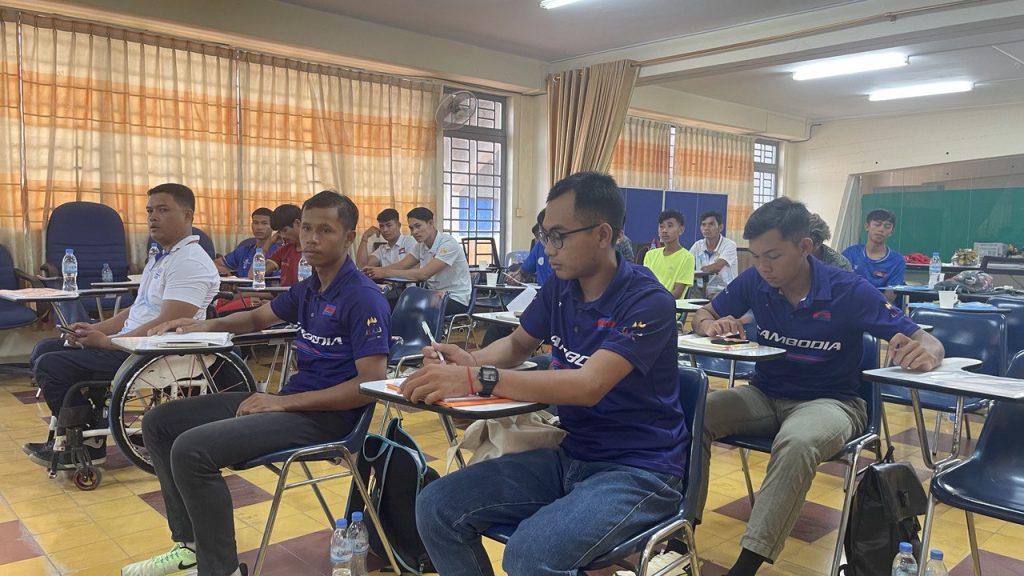

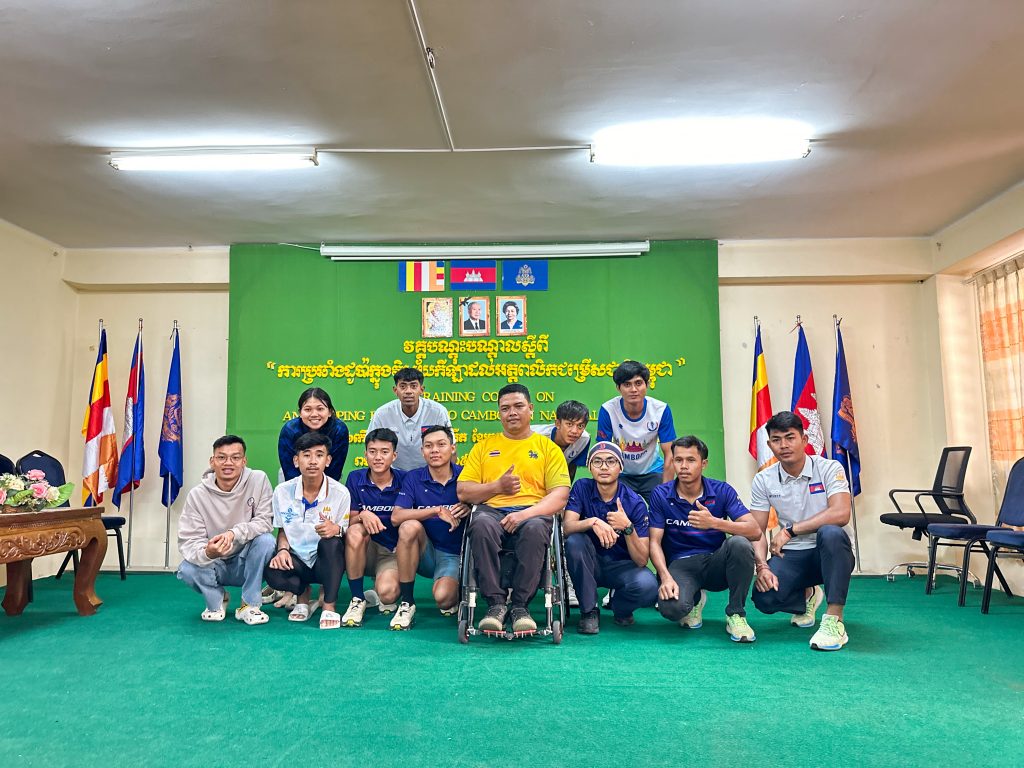
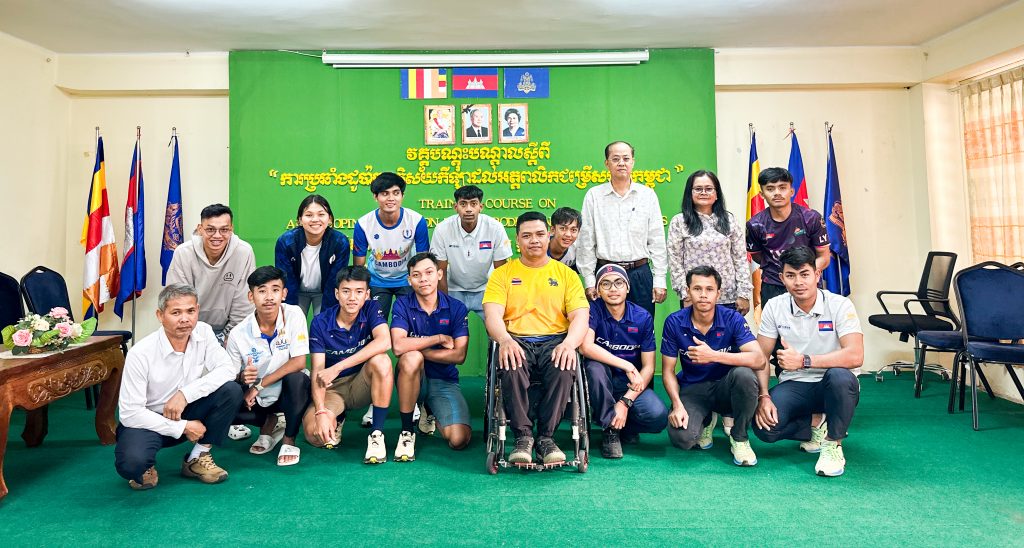
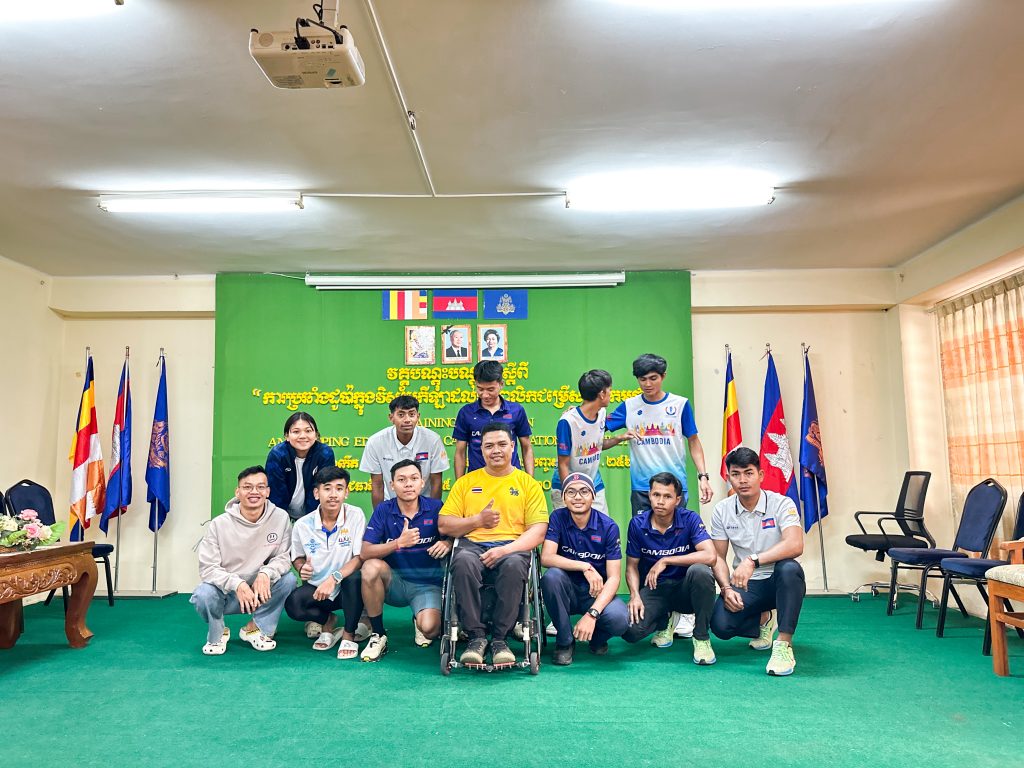
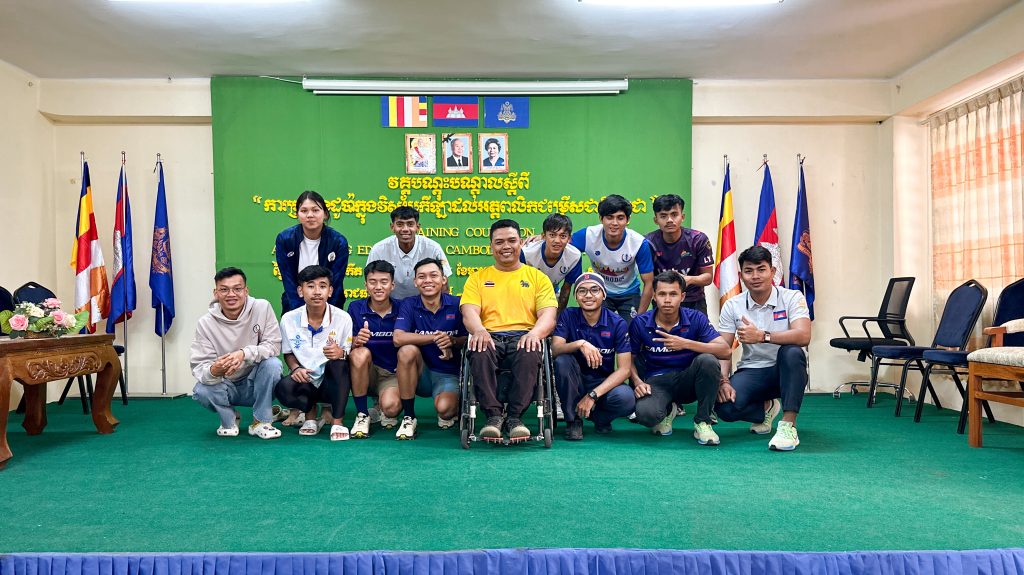
100% of national athletes successfully enrolled and completed ADEL Course
ATP, ILA, Talented Athletes.
Cambodia Anti Doping Agency has organized a workshop on anti-doping in sports and the Anti-Doping E-Learning (ADEL) program for 50 athletes from April 25th to 29th, 2024.




On June 27, 2024, the CADA team promoted anti-doping awareness in Kep Province, targeting physical education and sports teachers as well as students.

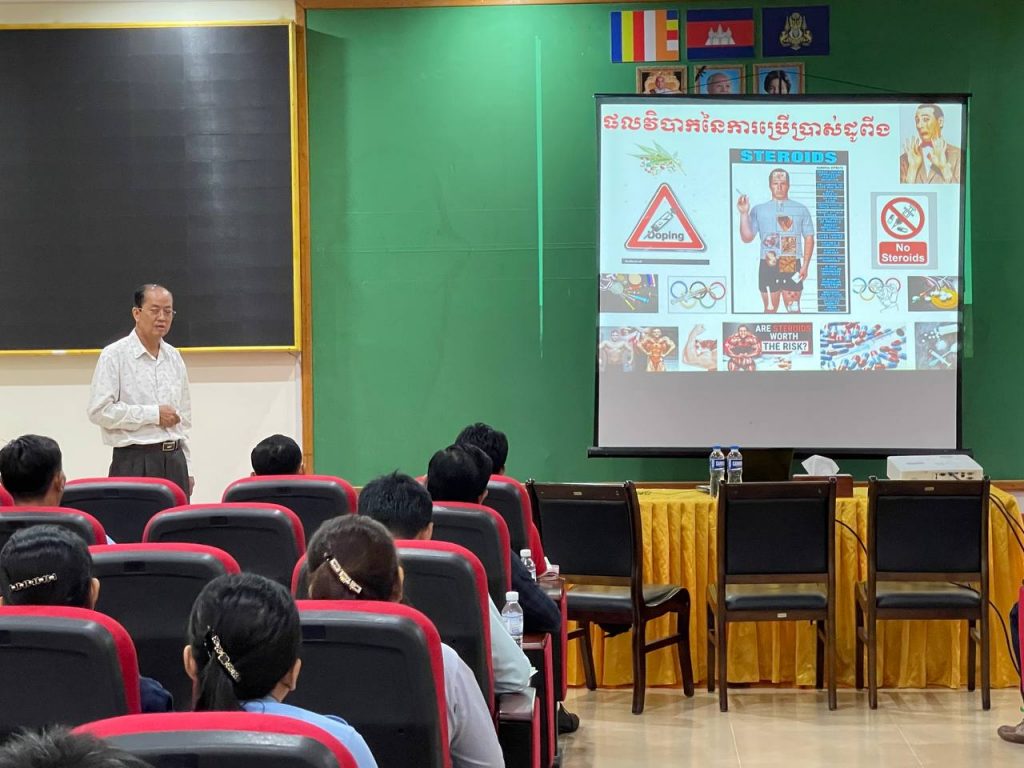
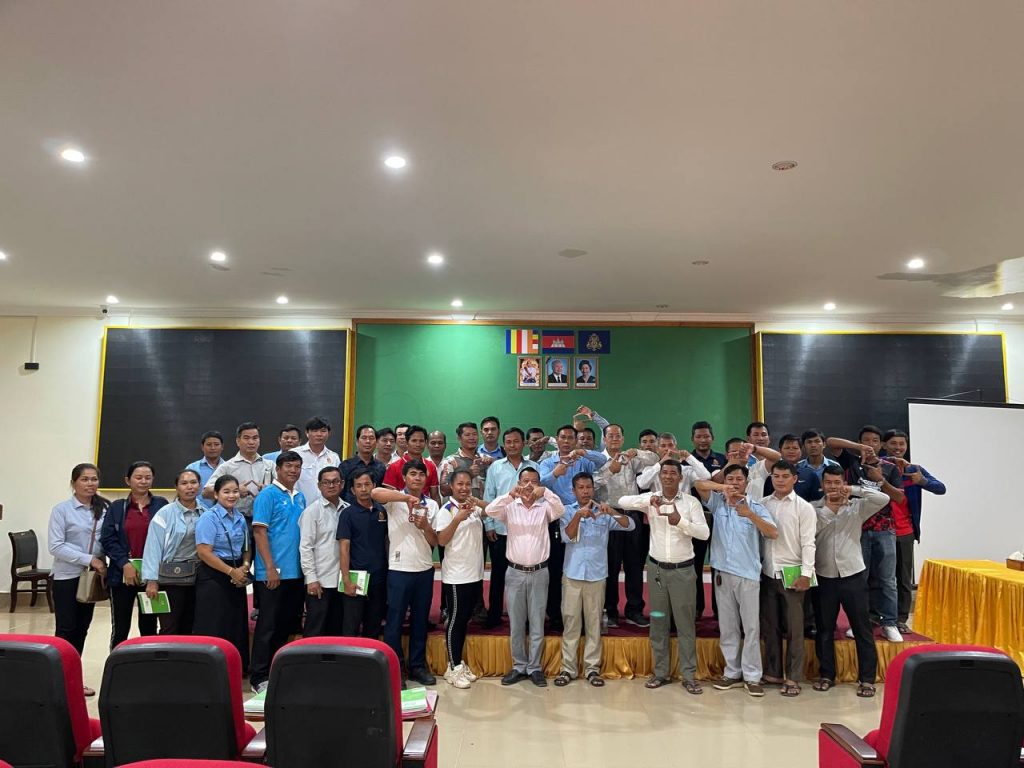
On July 2, 2024, the CADA team conducted an anti-doping campaign in Takeo province for officials, physical education and sports teachers, and students.
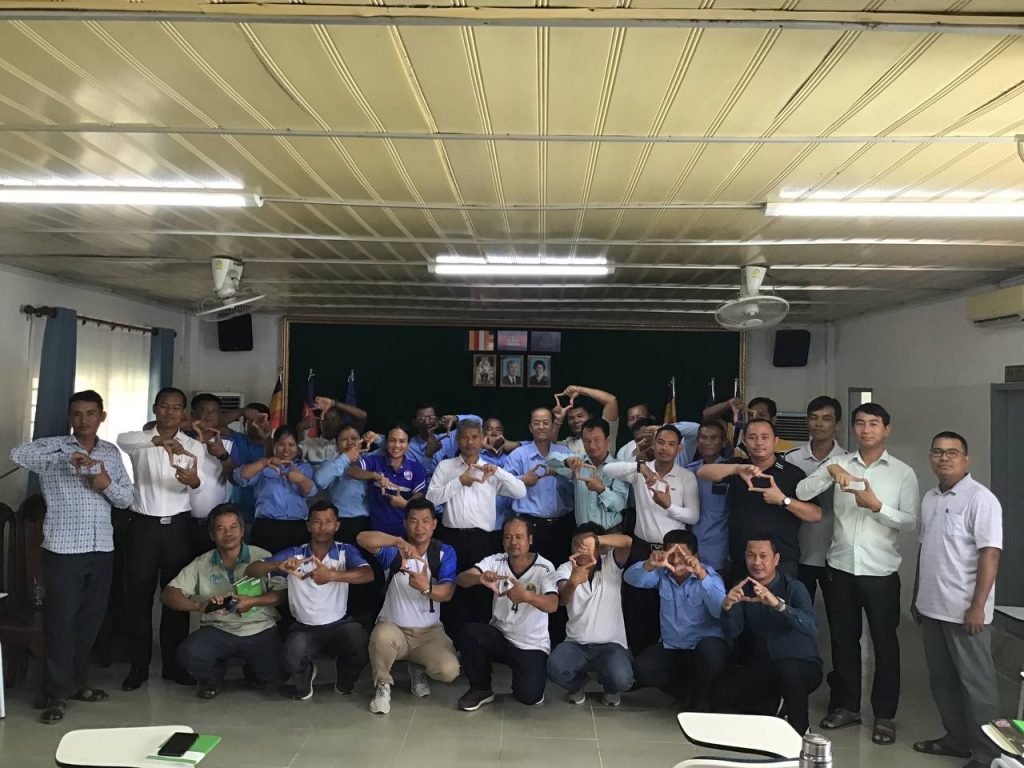

វគ្គបណ្តុះបណ្តាលស្តីពីការប្រឆាំងដូពីងក្នុងវិស័យកីឡា
រាជធានីភ្នំពេញ៖ នាព្រឹកថ្ងៃទី១០ ខែមីនា ឆ្នាំ២០២៥ នៅសាលប្រជុំមជ្ឈមណ្ឌលជាតិហ្វឹកហ្វឺនកីឡា
ទីភ្នាក់ងារកម្ពុជាប្រឆាំងដូប៉ា បានបើកវគ្គបណ្តុះបណ្តាលស្តីពីការប្រឆាំងដូពីងក្នុងវិស័យកីឡា ក្រោមអធិបតីភាព លោកជំទាវ គឹម សេដ្ឋានី រដ្ឋលេខាធិការប្រចាំការ នៃក្រសួងអប់រំ យុវជន និងកីឡា និងជាអនុប្រធានប្រចាំការក្រុមប្រឹក្សាភិបាលទីភ្នាក់ងារកម្ពុជាប្រឆាំងដូប៉ា តំណាងដ៏ខ្ពង់ខ្ពស់ ឯកឧត្តម បណ្ឌិតសភាចារ្យ ឧបនាយករដ្ឋមន្ត្រី រដ្ឋមន្ត្រីក្រសួងអប់រំ យុវជន និងកីឡា។
ក្នុងពិធីនេះដែរមានការចូលរួមពី ឯកឧត្តម វ៉ាត់ ចំរើន រដ្ឋលេខាធិការក្រសួងអប់រំ យុវជន និងកីឡា
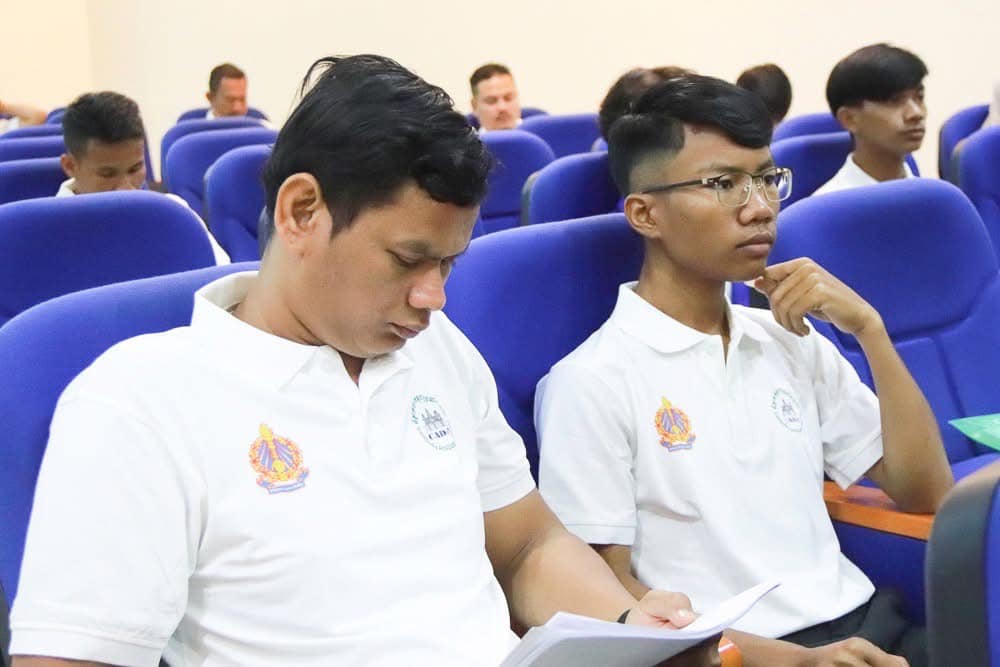
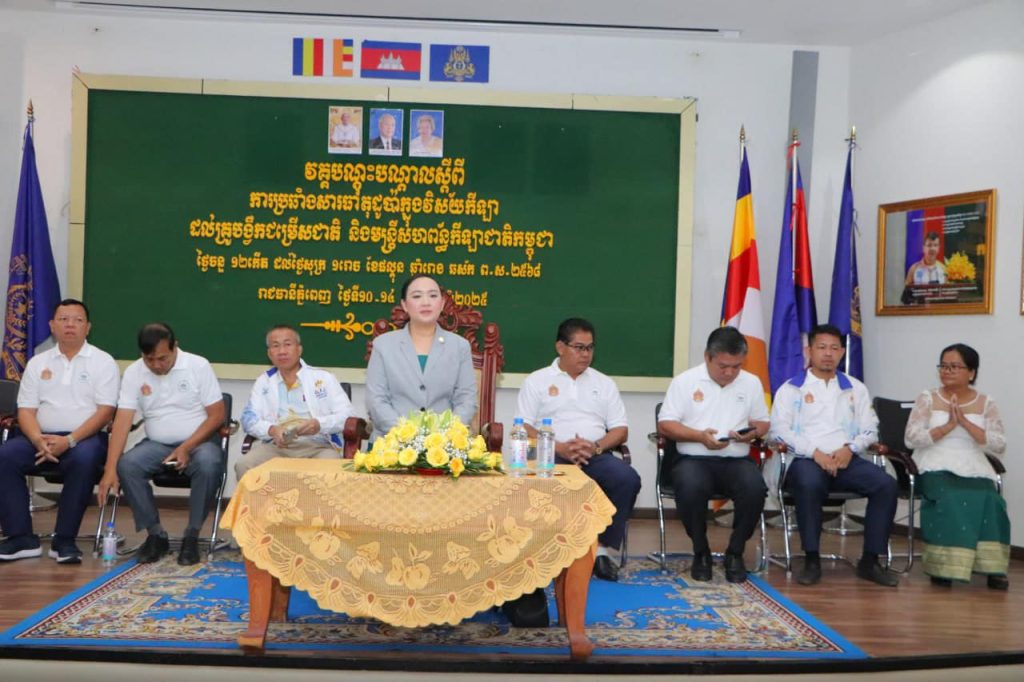
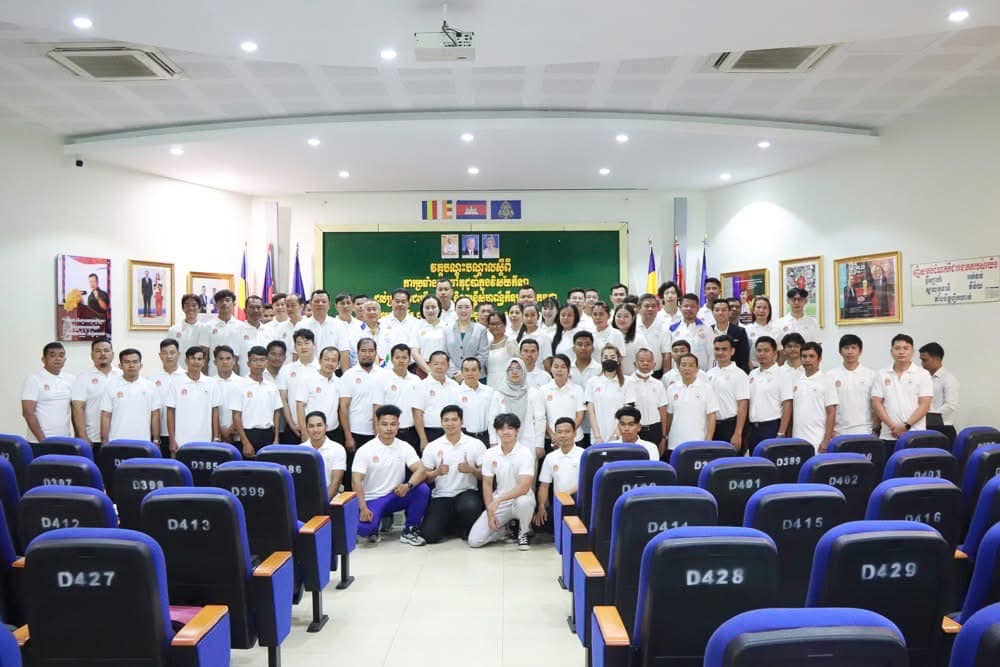
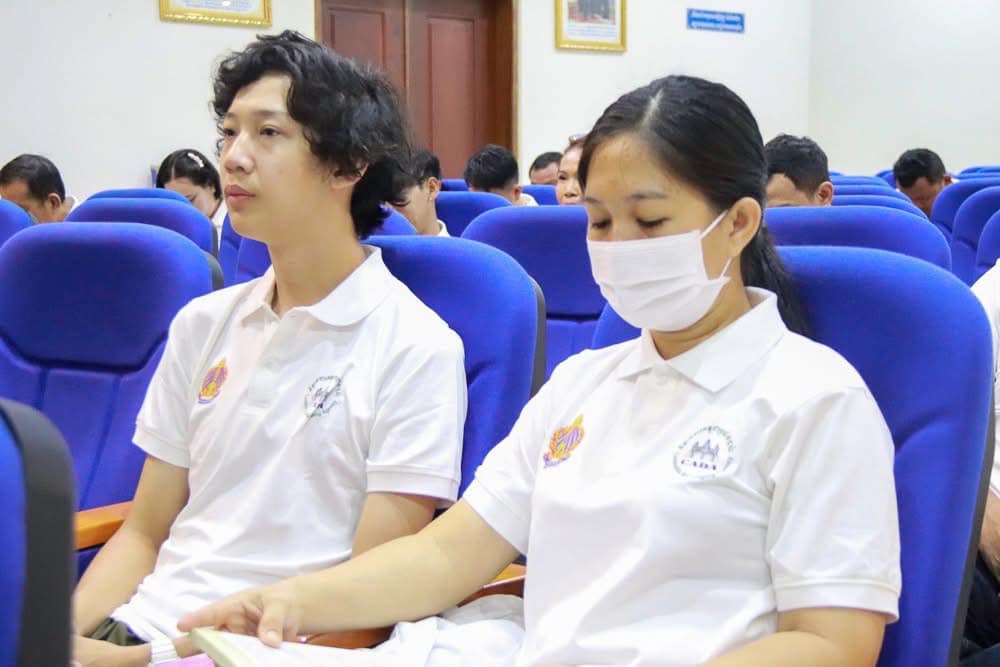
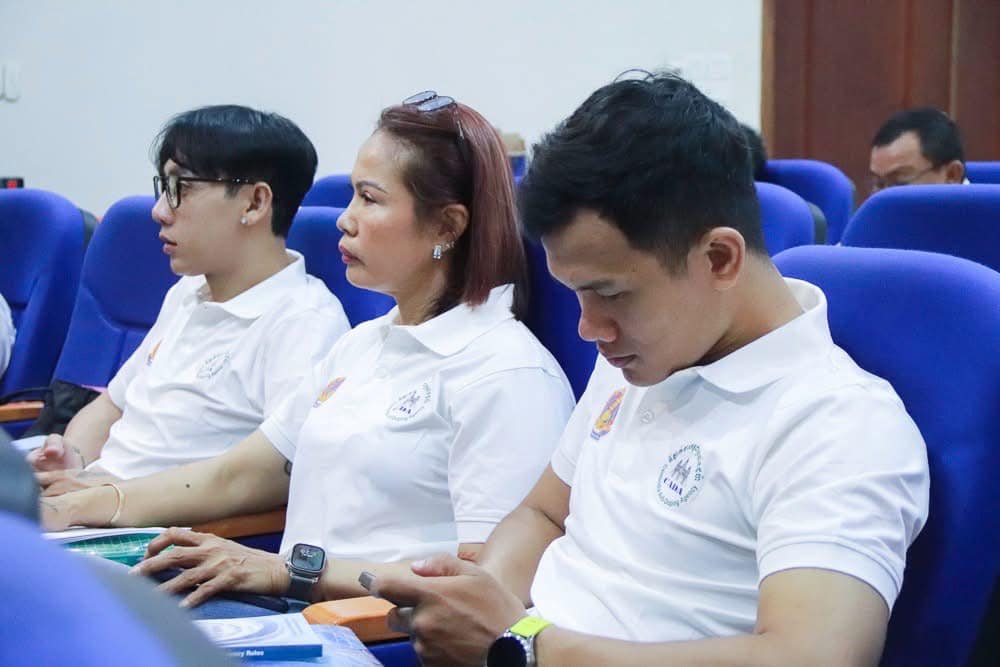
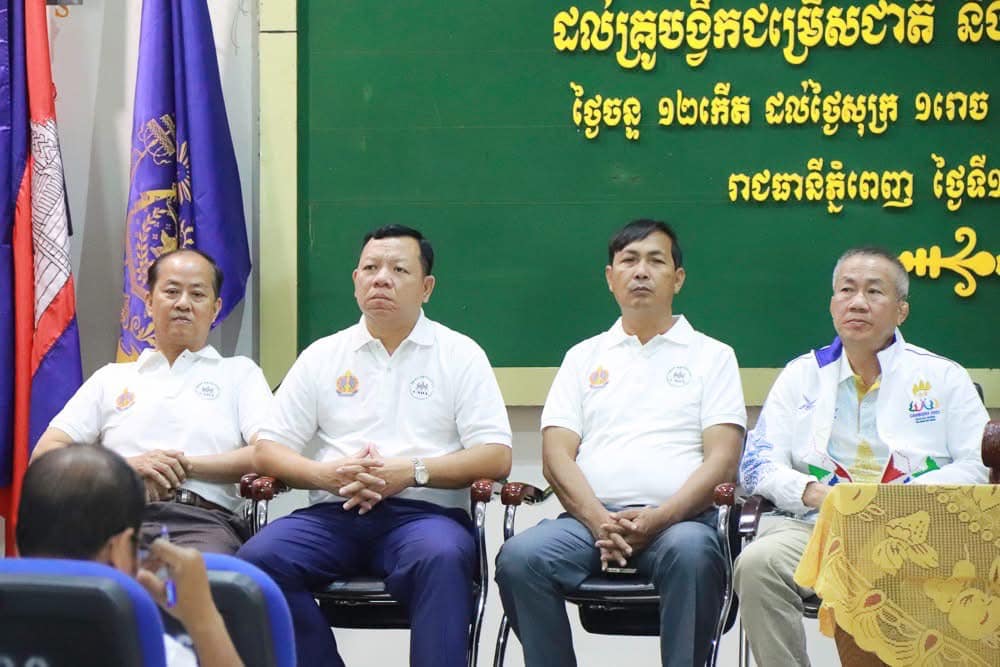
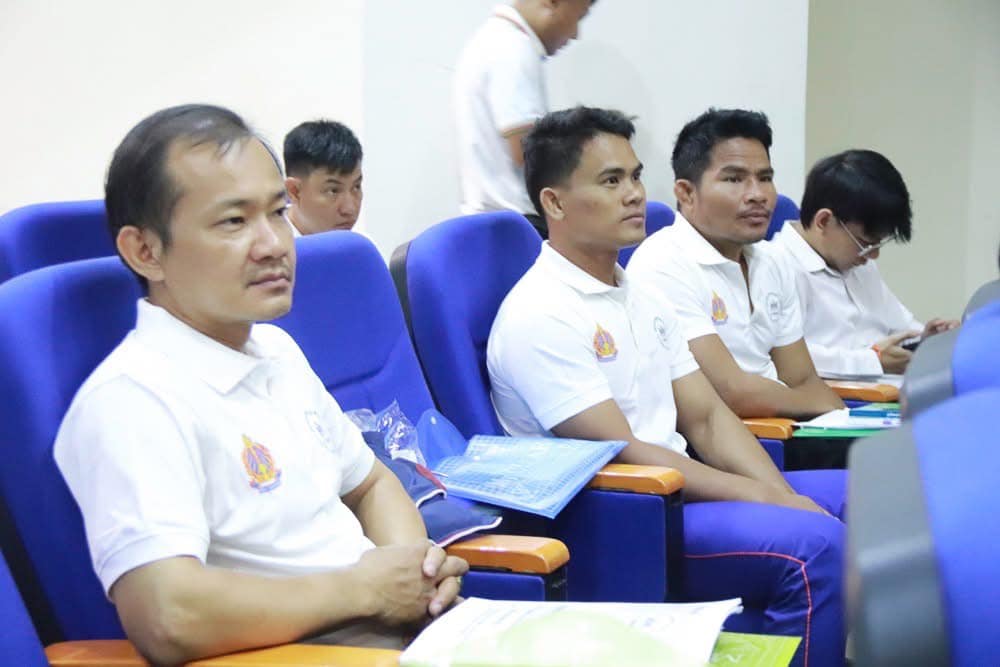
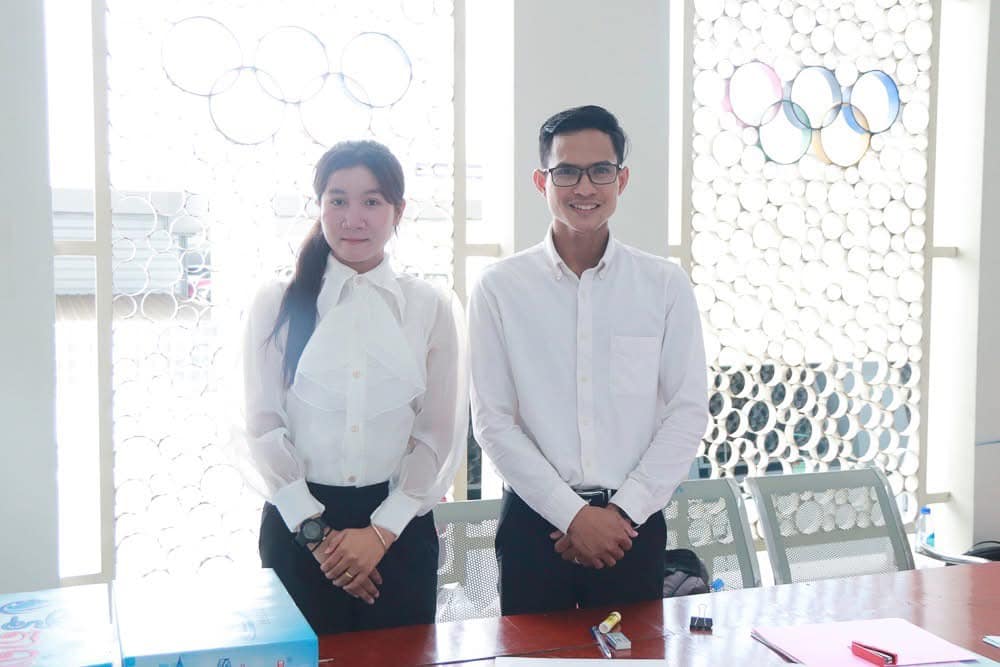
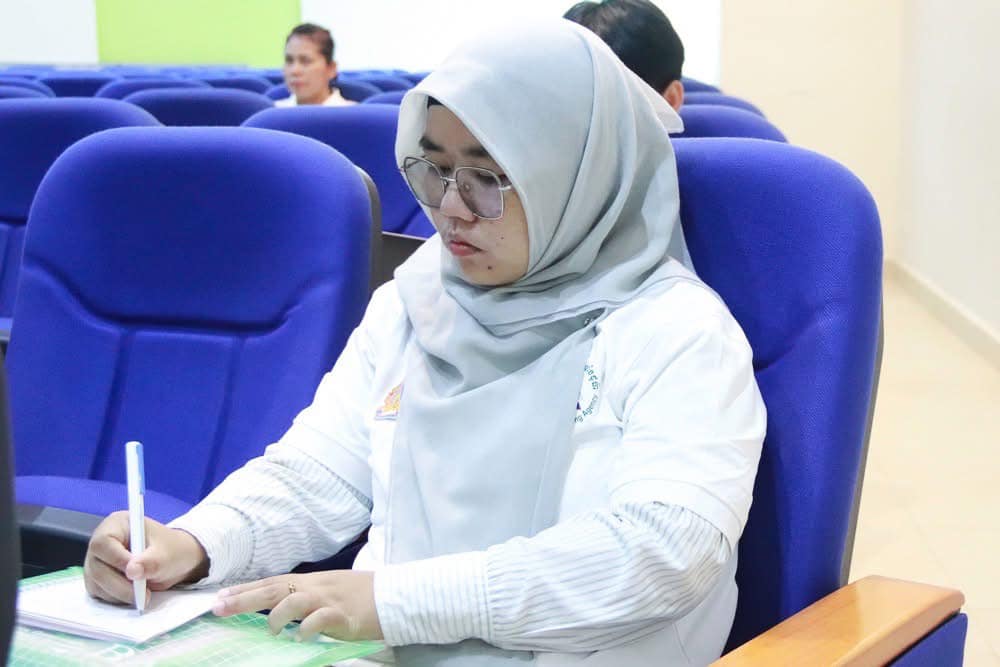
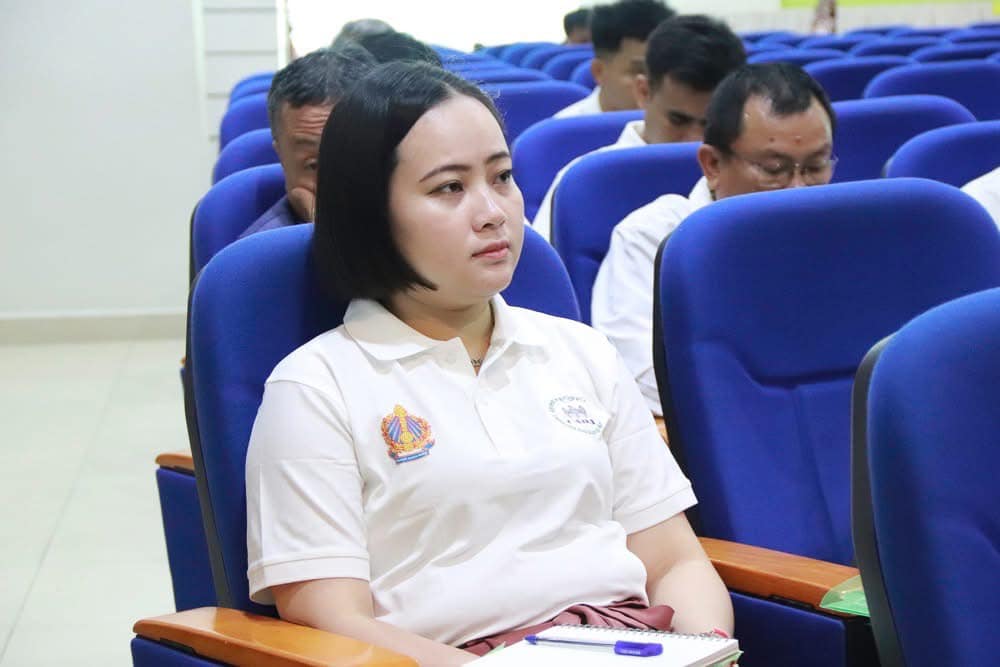
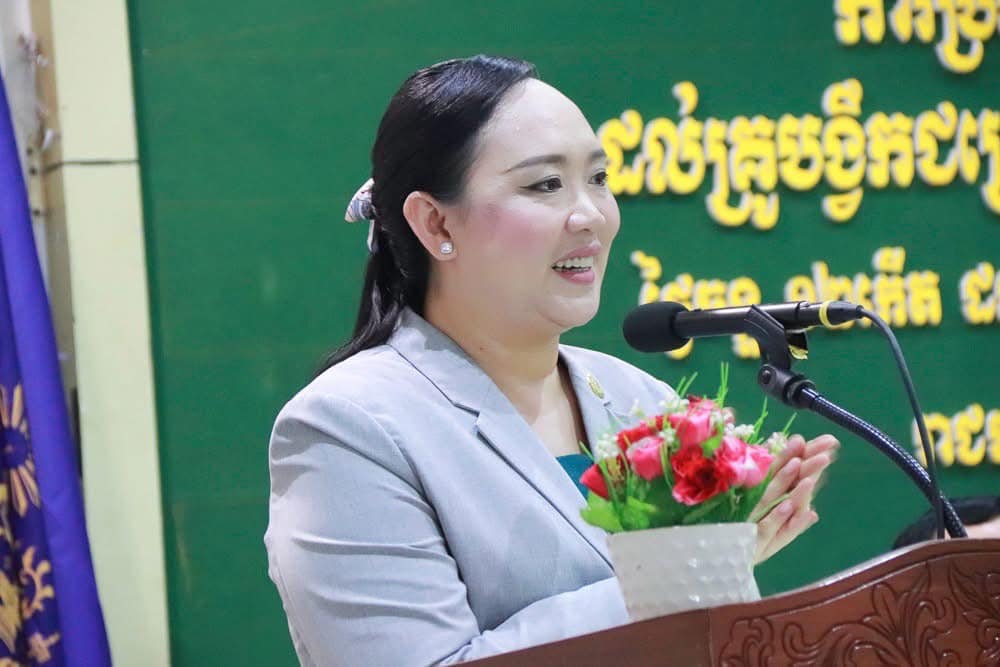
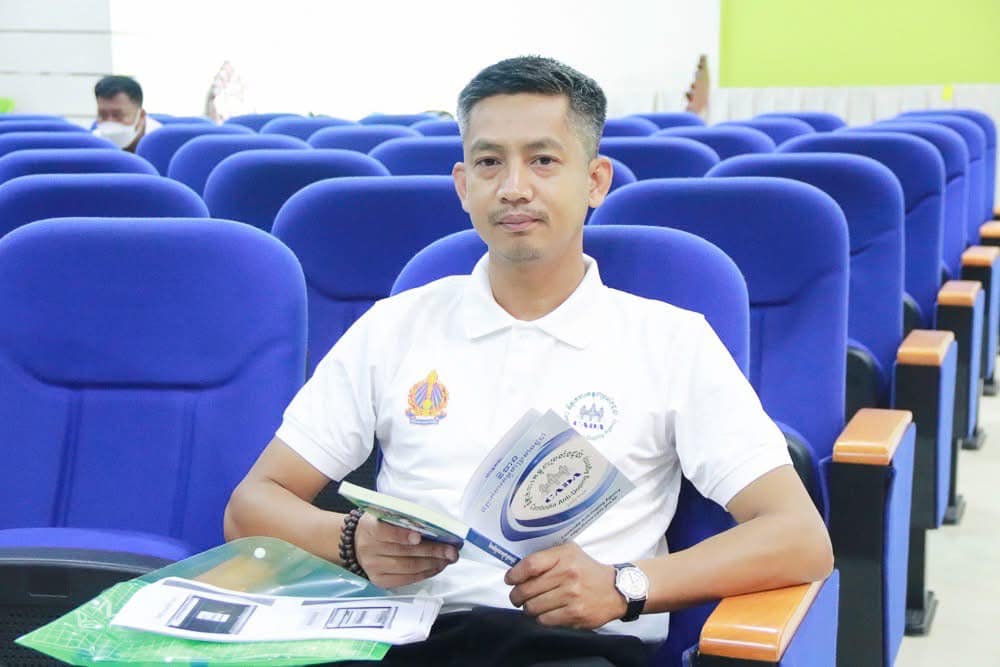
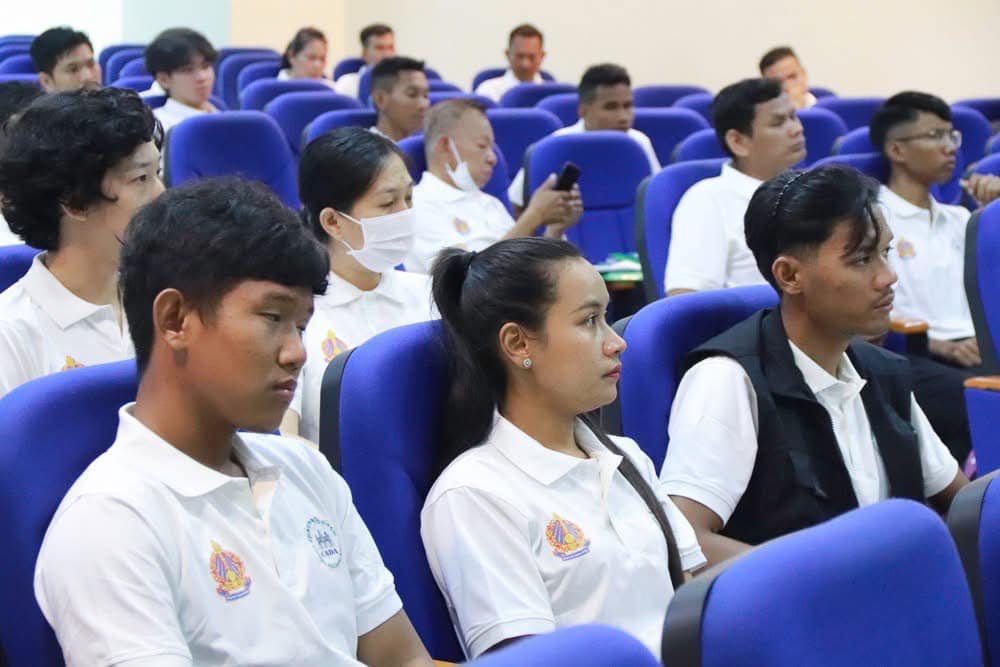
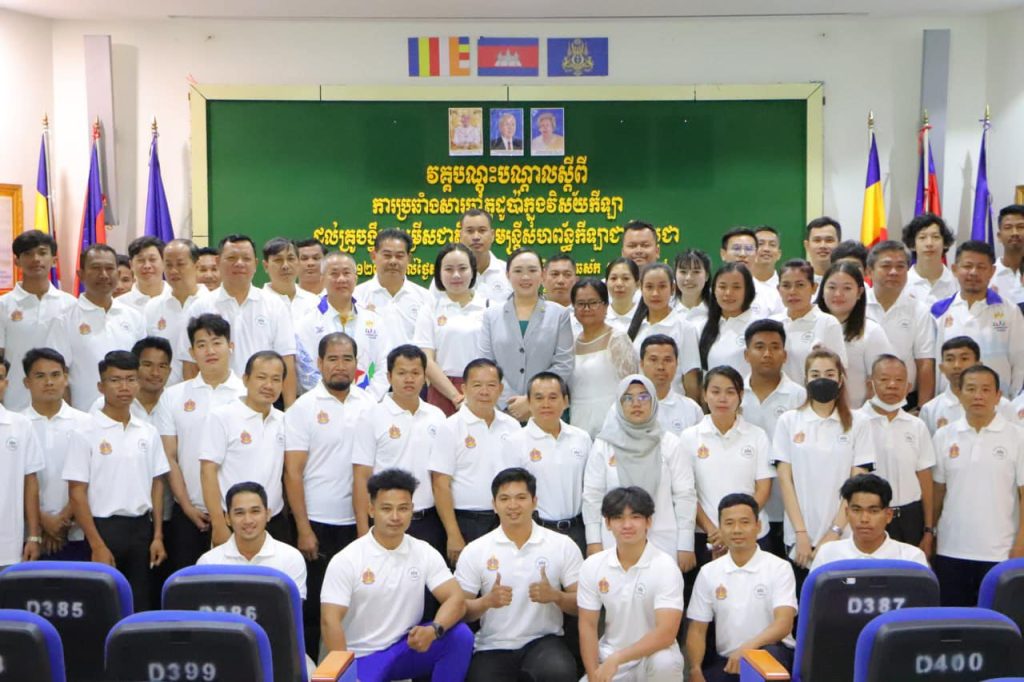
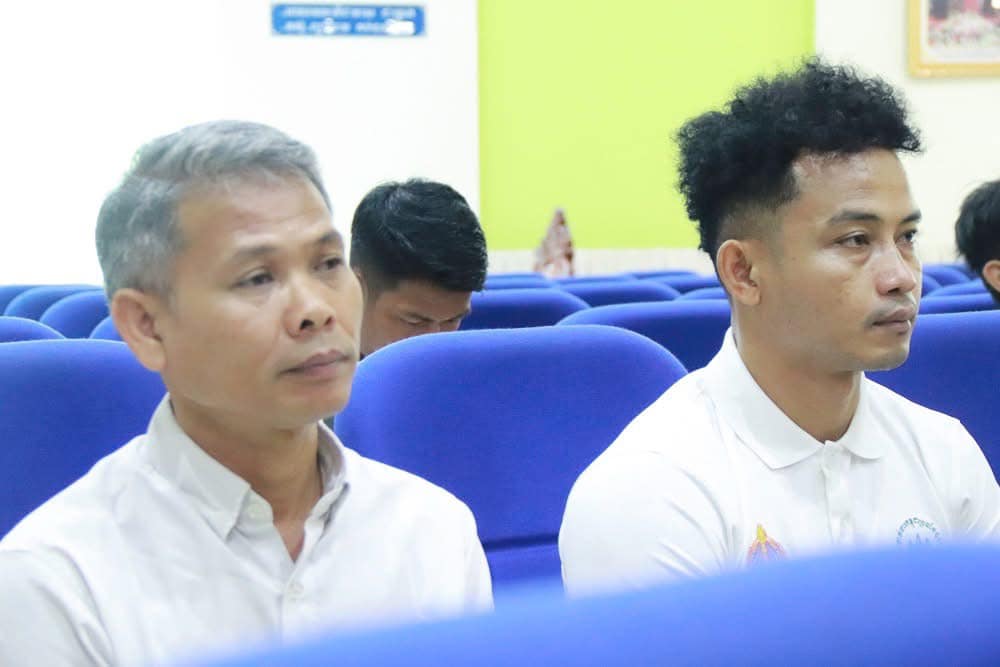
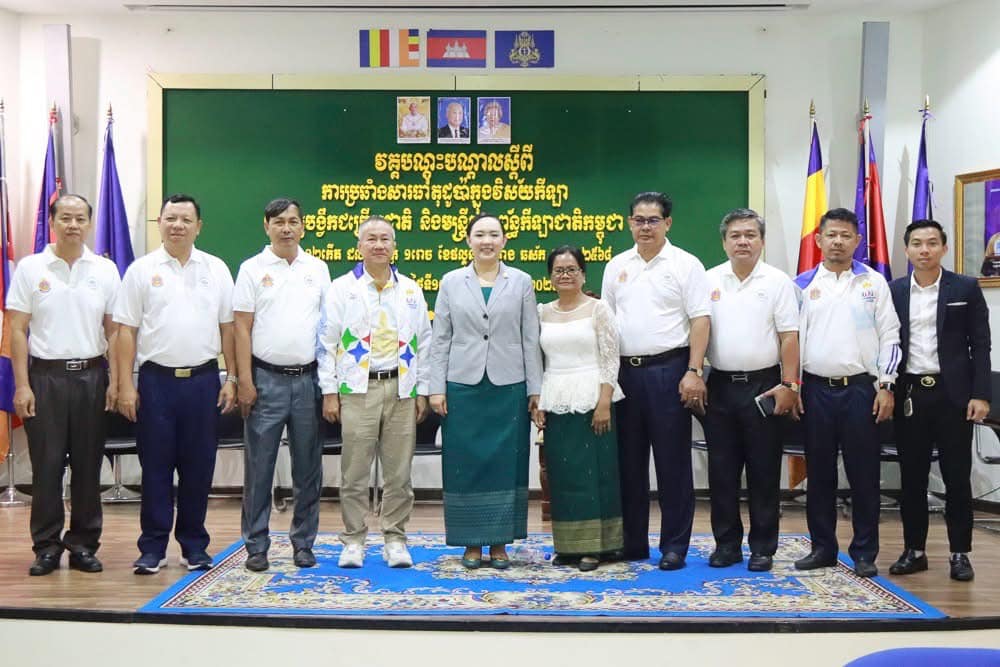
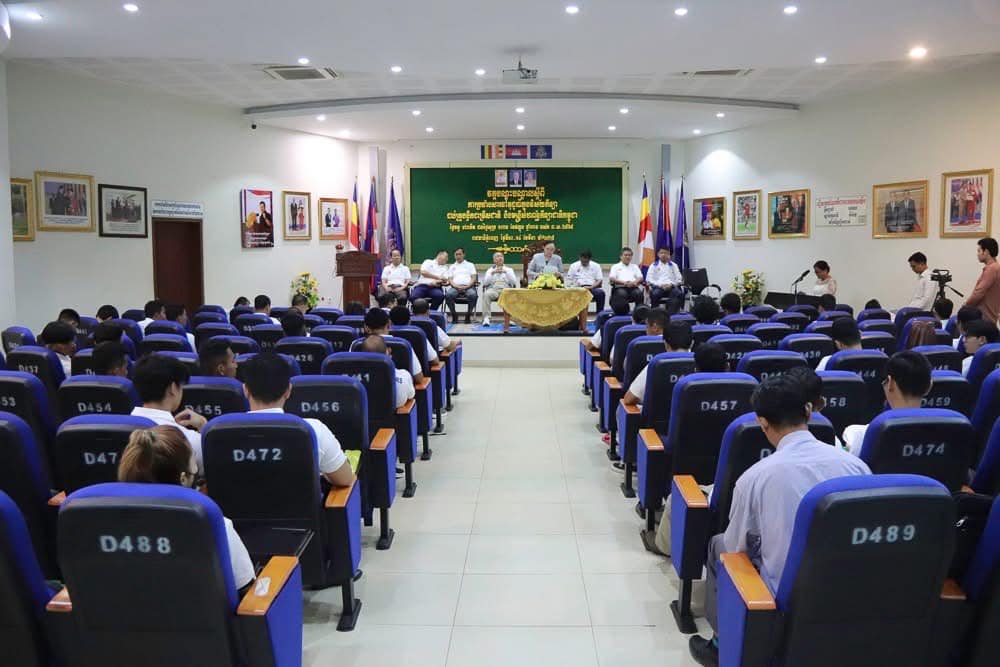
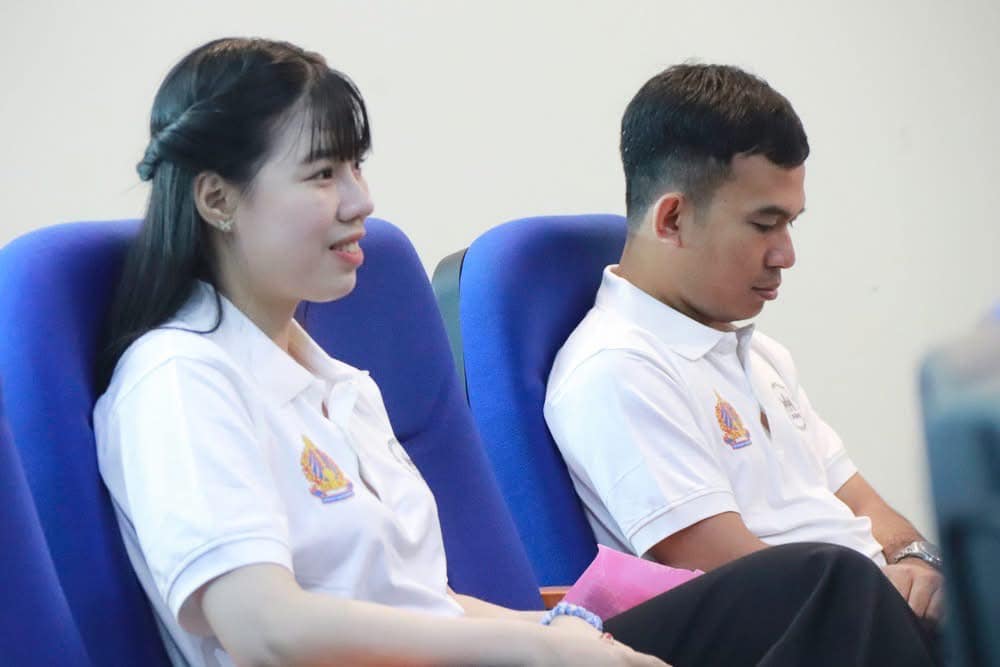
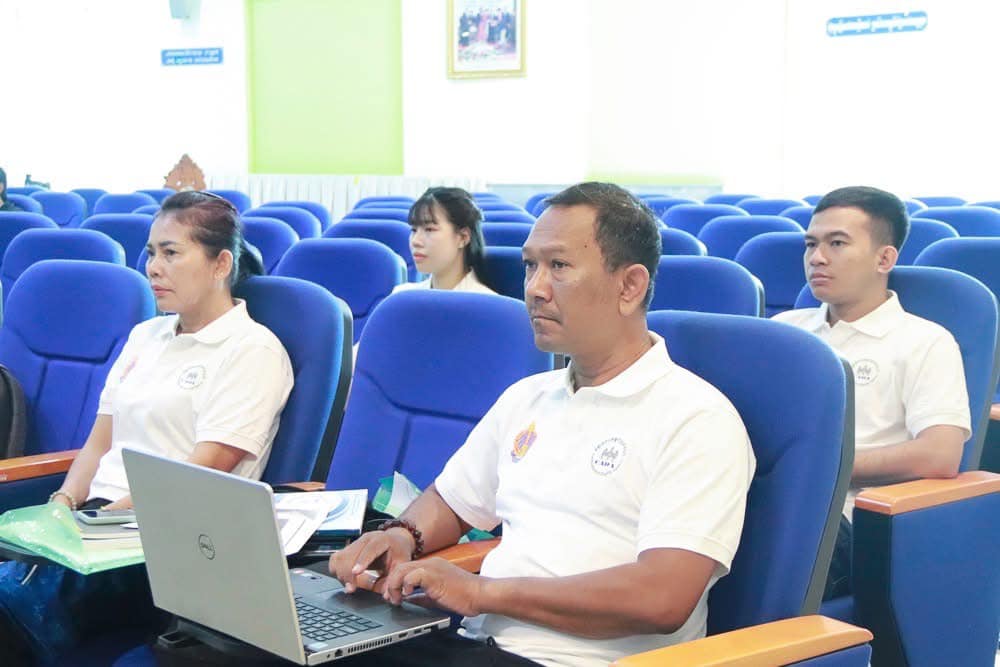
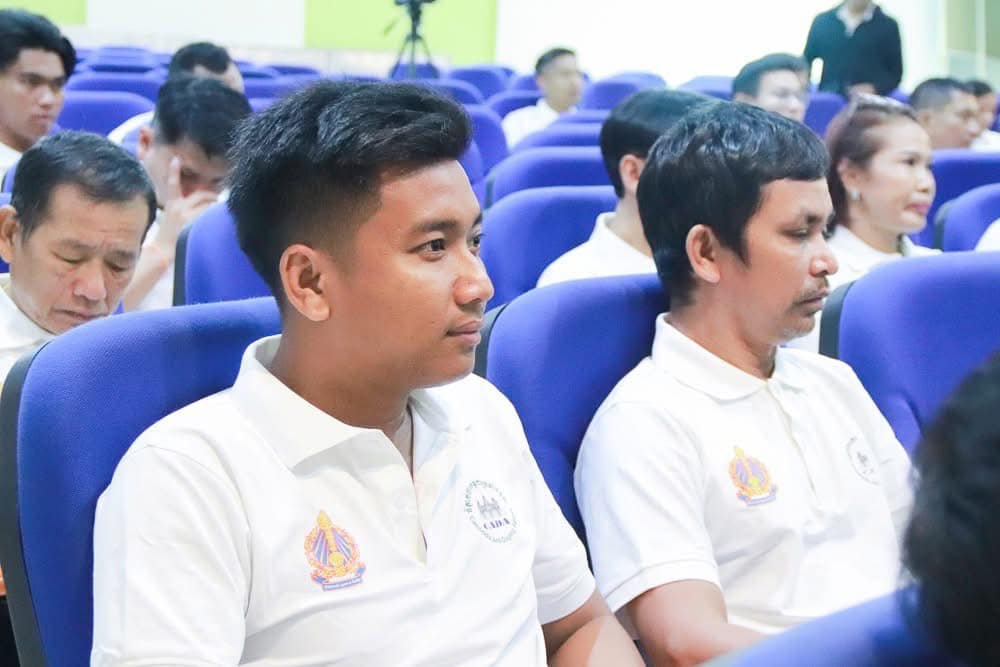
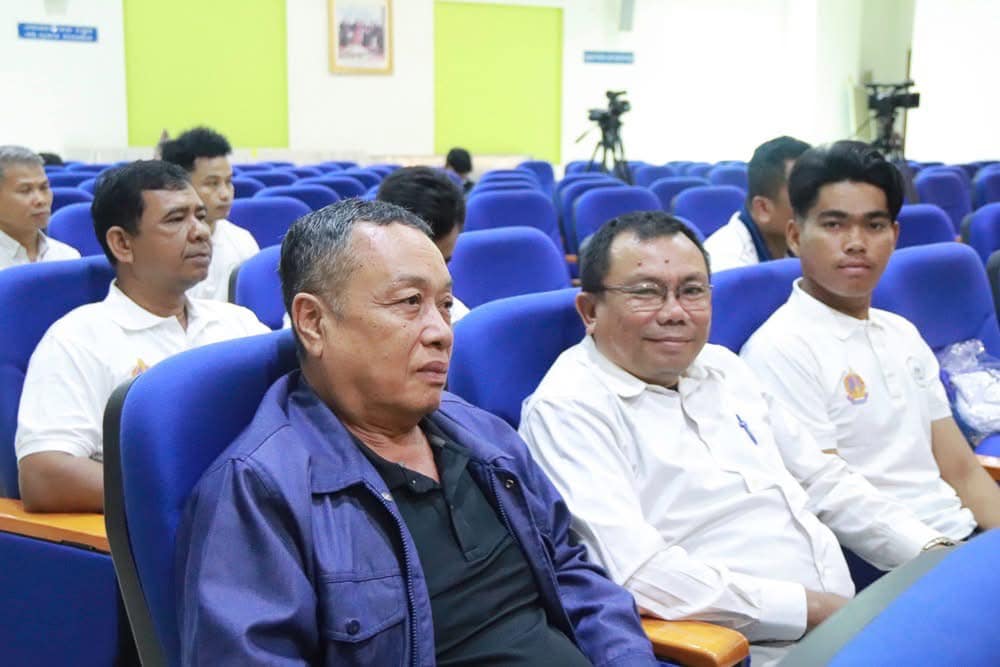
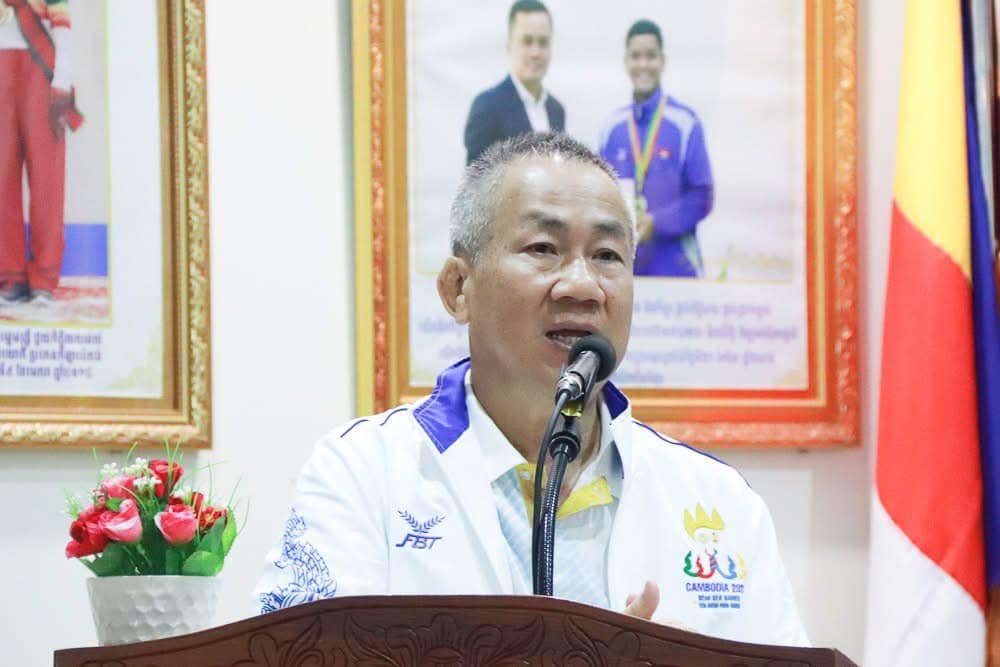
ឯកឧត្តម ប៉ុន សុខ អគ្គនាយក នៃអគ្គនាយកដ្ឋានកីឡា លោក ហួត សេងទ្រី ប្រធាននាយកដ្ឋានរៀបចំព្រឹត្តិការណ៍និងស្ថិតិកីឡា លោក បឹង គឹមតោ ប្រធាននាយកដ្ឋាន អប់រំកាយ និងកីឡាសិស្សនិស្សិត លោក យាន គីស៊ីវុត្ថា ប្រធានមជ្ឈមណ្ឌលជាតិហ្វឹកហ្វឺនកីឡា លោក ប៉ែន វុទ្ធី ប្រធាននាយកដ្ឋានកីឡាជំនាញនិងកីឡាមហាជន ព្រមទាំងអស់លោក លោកស្រីពាក់ព័ន្ធនានា ។
វគ្គបណ្តុះបណ្តាលស្តីពីការប្រឆាំងដូពីងក្នុងវិស័យកីឡារៀបចំឡើងរយៈពេល៥ថ្ងៃ ចាប់ពីថ្ងៃទី១០ដល់ថ្ងៃទី១៤ ខែមីនា ឆ្នាំ២០២៥ មានសិក្ខាកាមចូលរួមសរុបចំនួន៧៥នាក់ ជាគ្រូបង្វឹក មន្ត្រីកីឡា តំណាងសហព័ន្ធកីឡាជាតិ គោលដៅចំនួន៣៧នាក់។ វគ្គនេះមានគោលបំណងដើម្បីផ្តល់ចំណេះដឹងអំពីផលវិបាកនៃការប្រើប្រាស់ដូពីង និងការពិន័យទោសទណ្ឌដែលកើតឡើងក្រោយការរកឃើញថាមានការរំលោភលើវិធានប្រឆាំងដូពីង ជាពិសេសសិក្ខាកាមអាចទាញយកវិញ្ញាបនបត្រពី ADEL-E Learning Platform និងបញ្ចូល WHEREABOUTS ក្នុងប្រព័ន្ធ ADAMS ចំពោះកីឡាករកម្រិតខ្ពស់។
១០ មីនា ២០២៥ | រាជធានីភ្នំពេញ
ទីភ្នាក់ងារកម្ពុជាប្រឆាំងដូប៉ា៖ កម្មវិធីបិទវគ្គបណ្ដុះបណ្ដាល ស្ដីពី ការប្រឆាំងសារធាតុដូប៉ាក្នុងវិស័យកីឡា ដល់គ្រូបង្វឹកជម្រើសជាតិ និងមន្ត្រីសហព័ន្ធកីឡាជាតិកម្ពុជា សមាសភាពចូលរួម មាន លោកស្រី លឿង សុផាណារ៉េត ប្រធានទីភ្នាក់ងារកម្ពុជាប្រឆាំងដូប៉ា លោក អនុប្រធាន លោក លោកស្រី ប្រធាន អនុប្រធានការិយាល័យ នៃទីភ្នាក់ងារកម្ពុជាប្រឆាំងដូប៉ា ឯកឧត្តម លោក លោកស្រី អ្នកនាង កញ្ញា សិក្ខាកាមទាំងអស់។
វគ្គនេះបានចាប់ផ្តើមពីថ្ងៃទី១០ រហូតដល់ទី១៤ ខែមីនា ឆ្នាំ២០២៥ ដោយមានសិក្ខាកាមចូលរួមចំនួន៖ ៧៥នាក់ ស្រីចំនួន៖ ១៤នាក់ មកពីសហព័ន្ធកីឡាជាតិចំនួន៣៨ គណកម្មការត្រួតពិនិត្យលទ្ធផលដូប៉ា និងគណៈកម្មការលើកលែងការប្រើប្រាស់ថ្នាំព្យាបាល។
ក្រោយពីបានសិក្សាអស់រយៈពេល៥ថ្ងៃ ទាំងផ្នែកទ្រឹស្តី និងអនុវត្តផ្ទាល់តាមអនឡាញ យើងបានកត់សម្គាល់ឃើញថា សិក្ខាកាម បានខិតខំប្រឹងប្រែងយកចិត្តទុកដាក់ និងមានការយល់ដឹងបានច្រើន ហើយទទួលបានលទ្ធផលល្អប្រសើរ គិតជាភាគរយ ៨៥%។




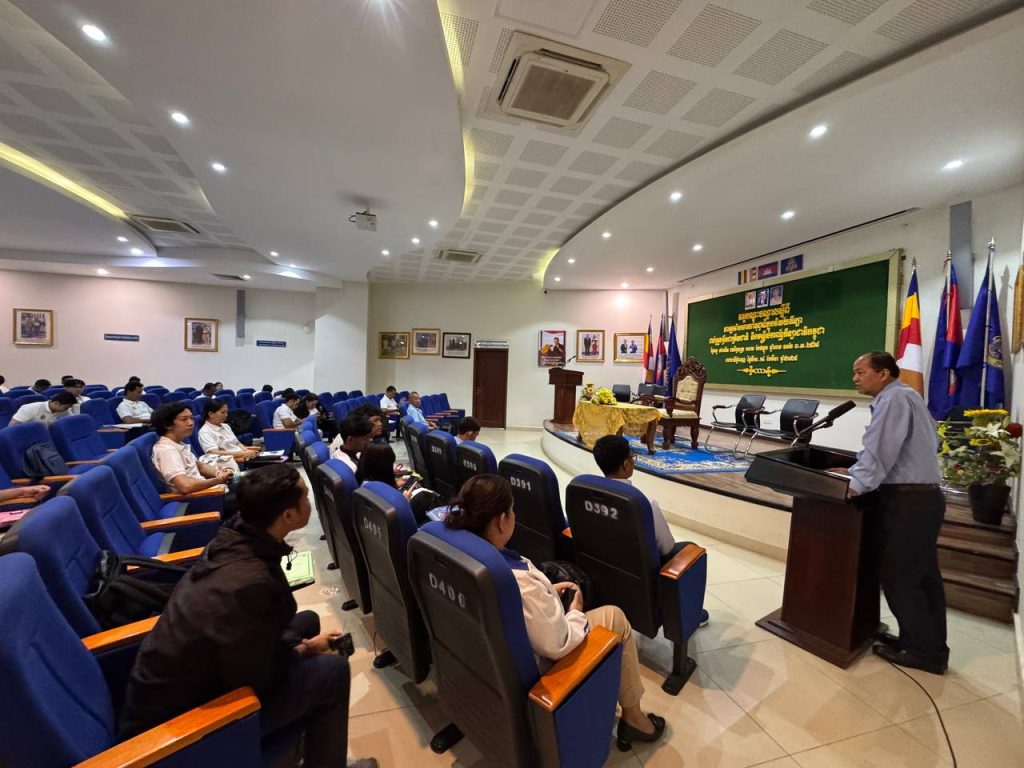
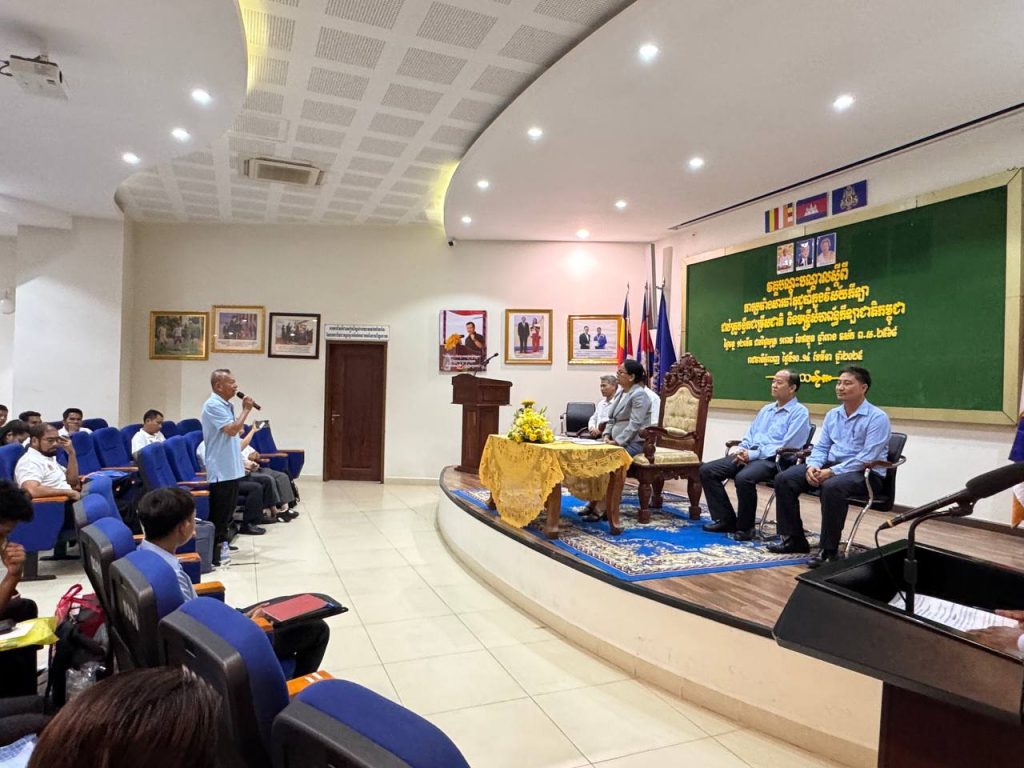
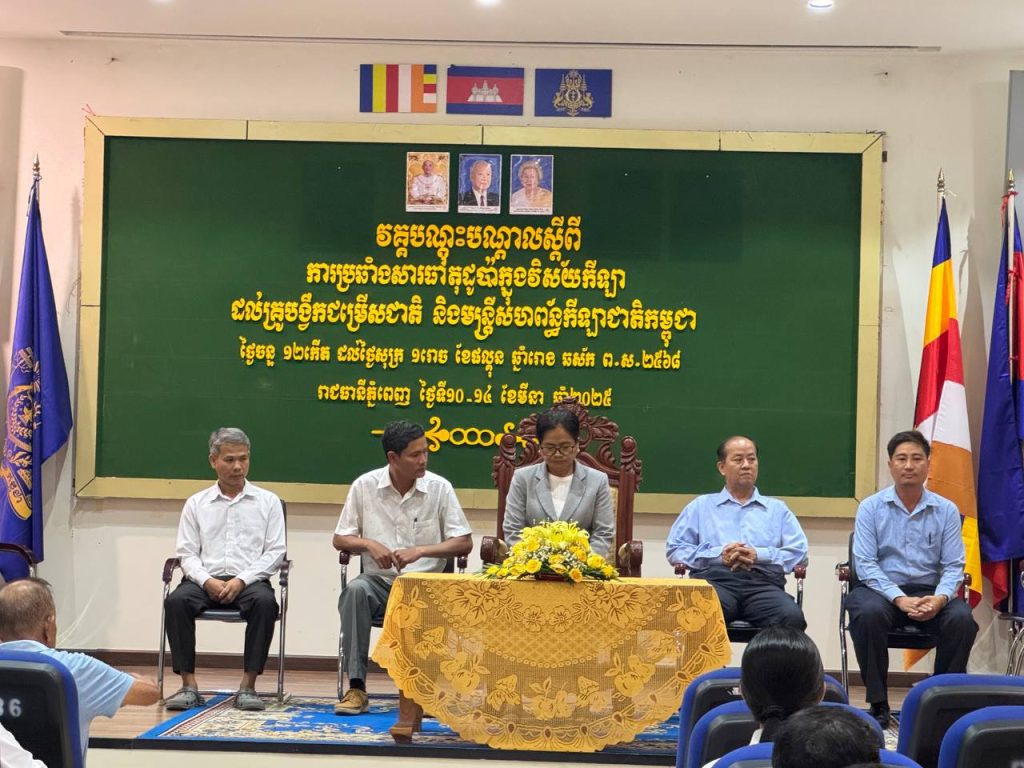
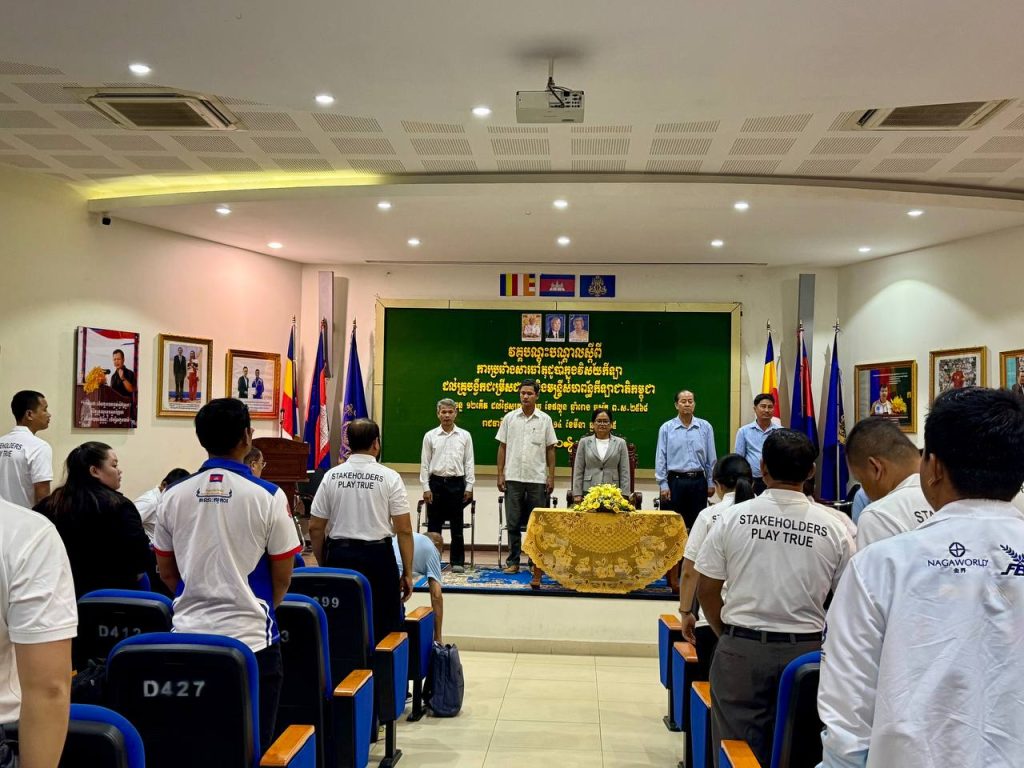

Education of Anti-Doping in sports to Sports Officers and PE Teachers in Preah Vihear province.
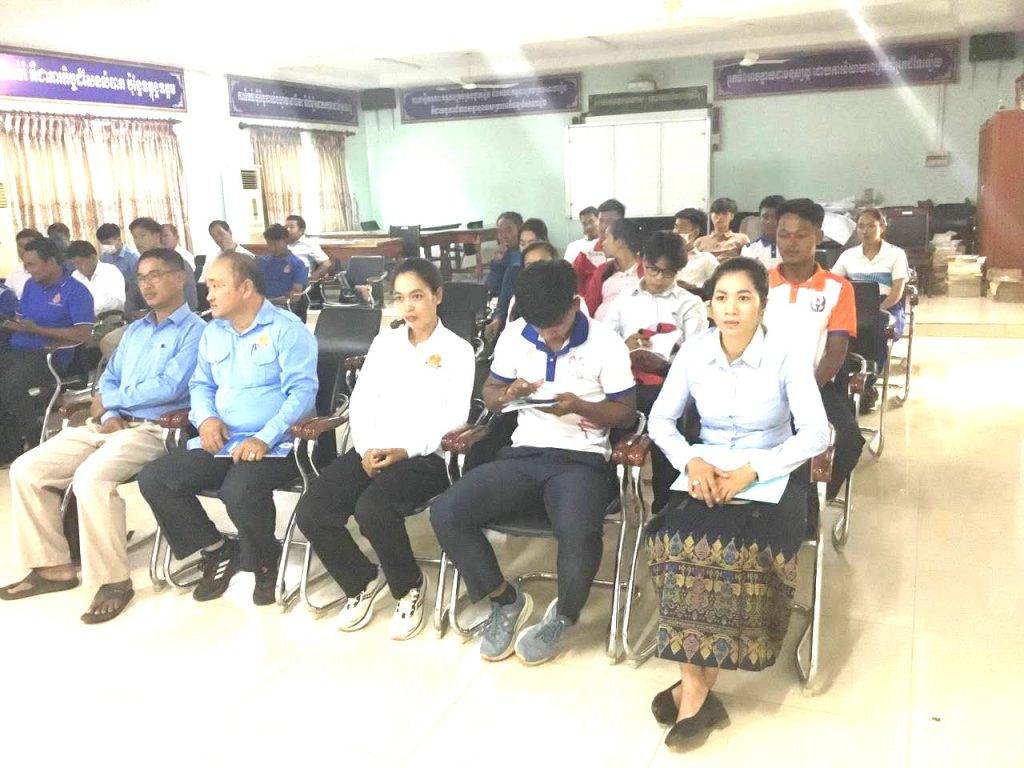
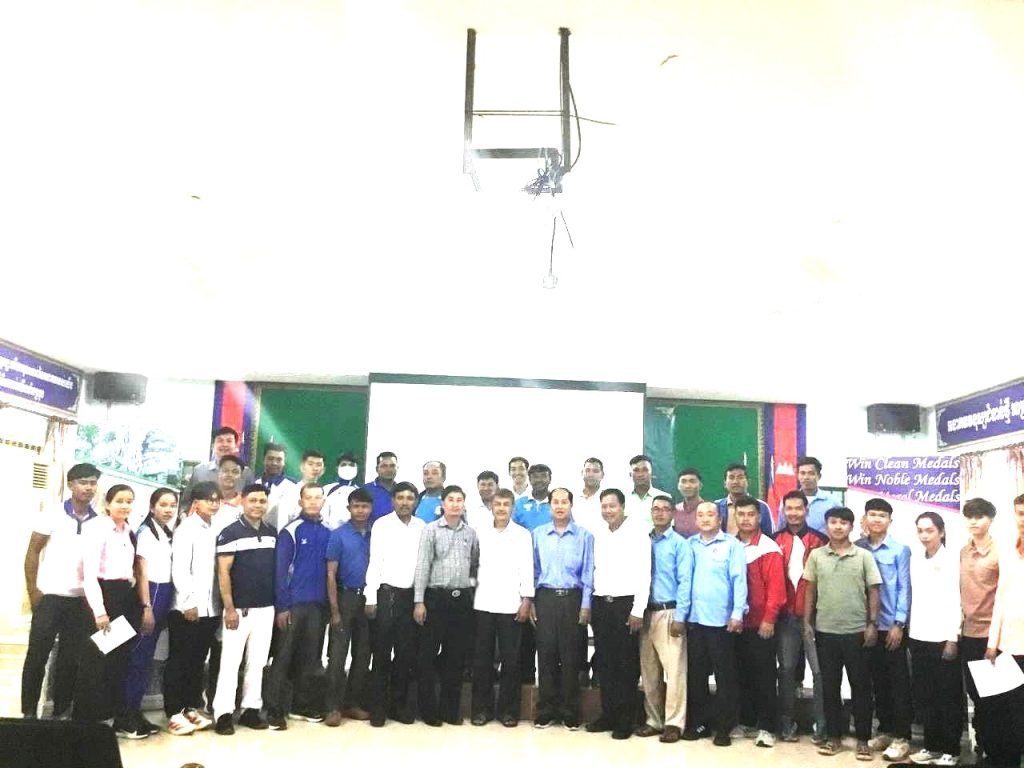
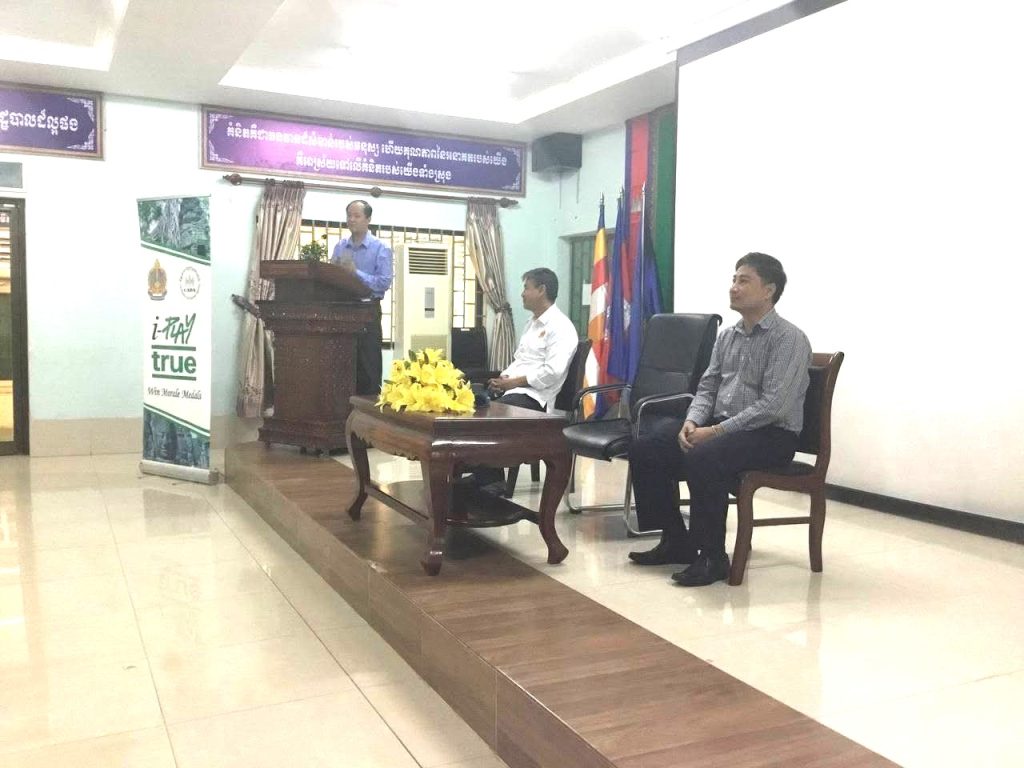
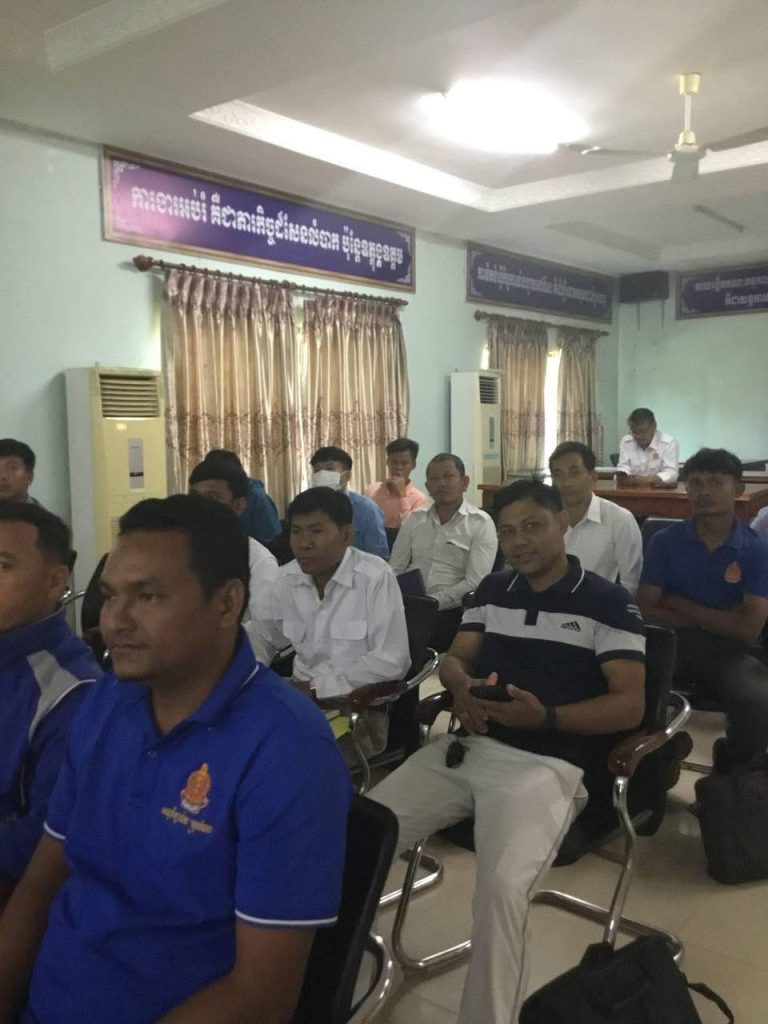
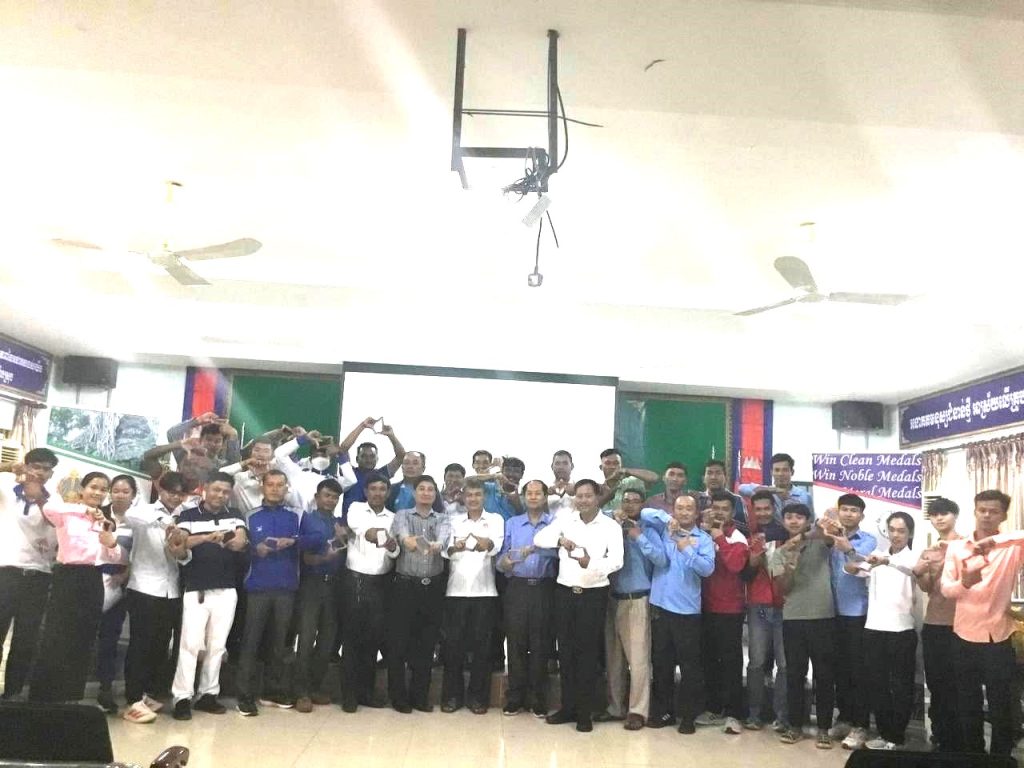
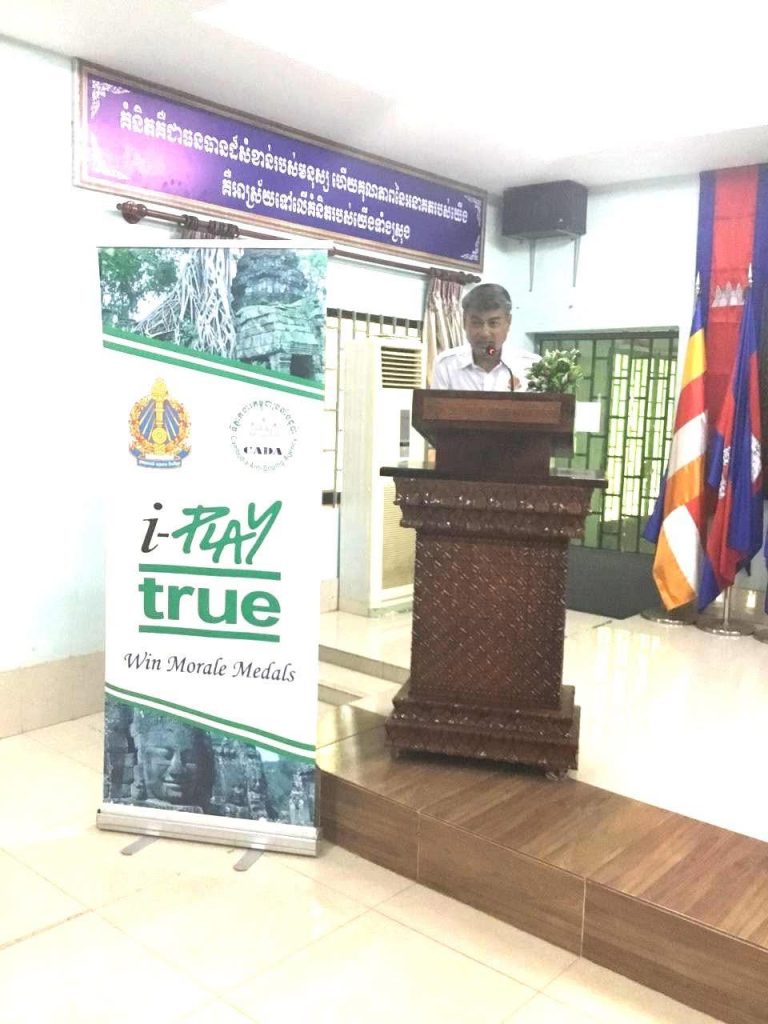
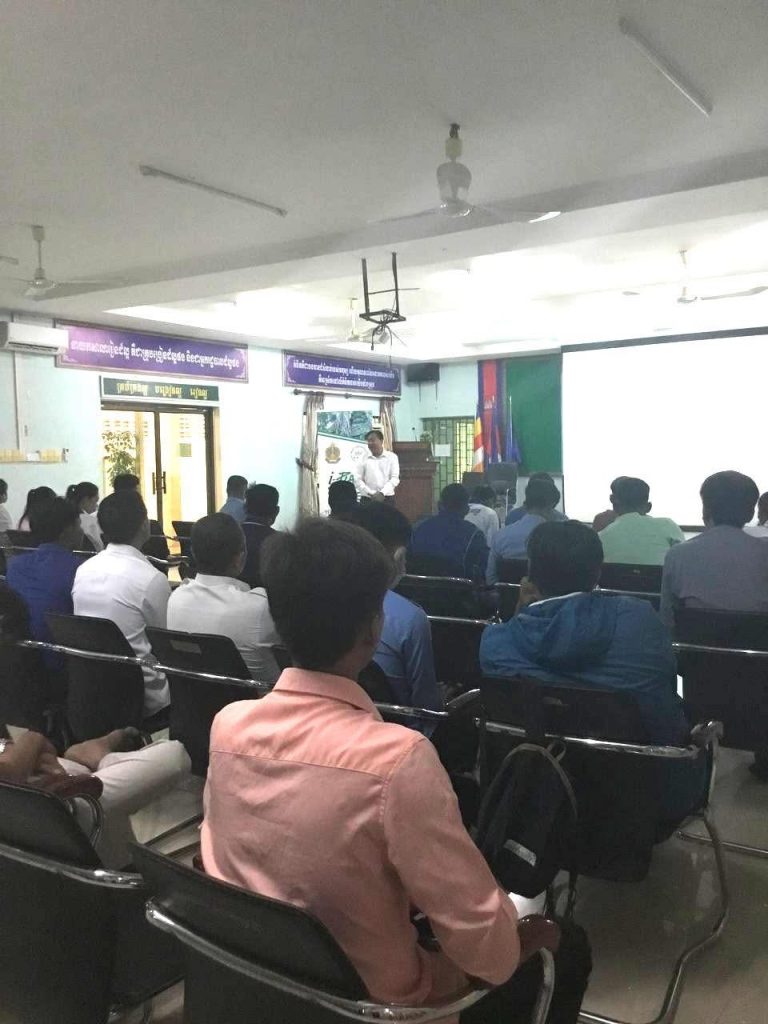
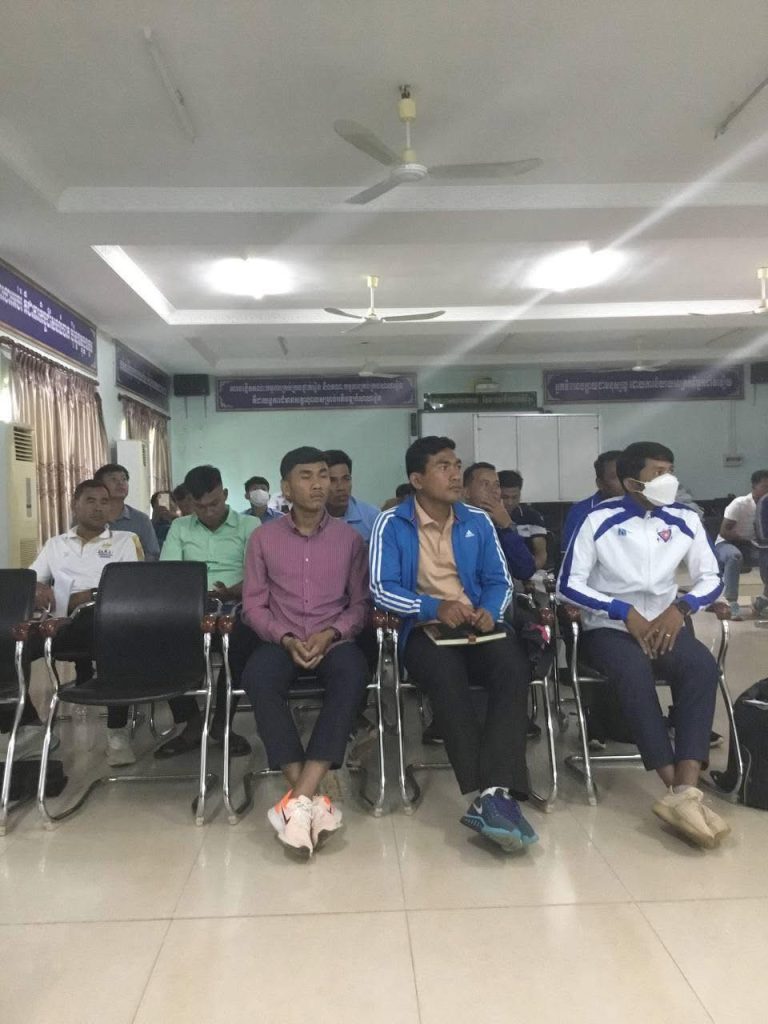
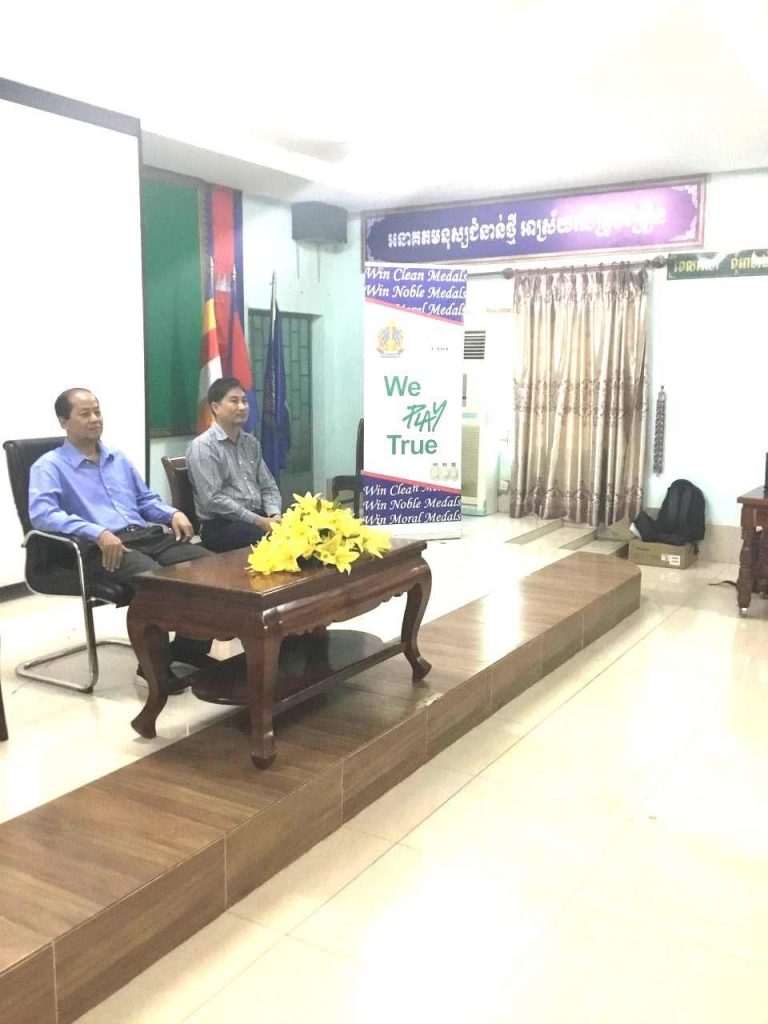
Education of Anti-Doping in Sports to Primary and Secondary Students in Kampong Thom Province.
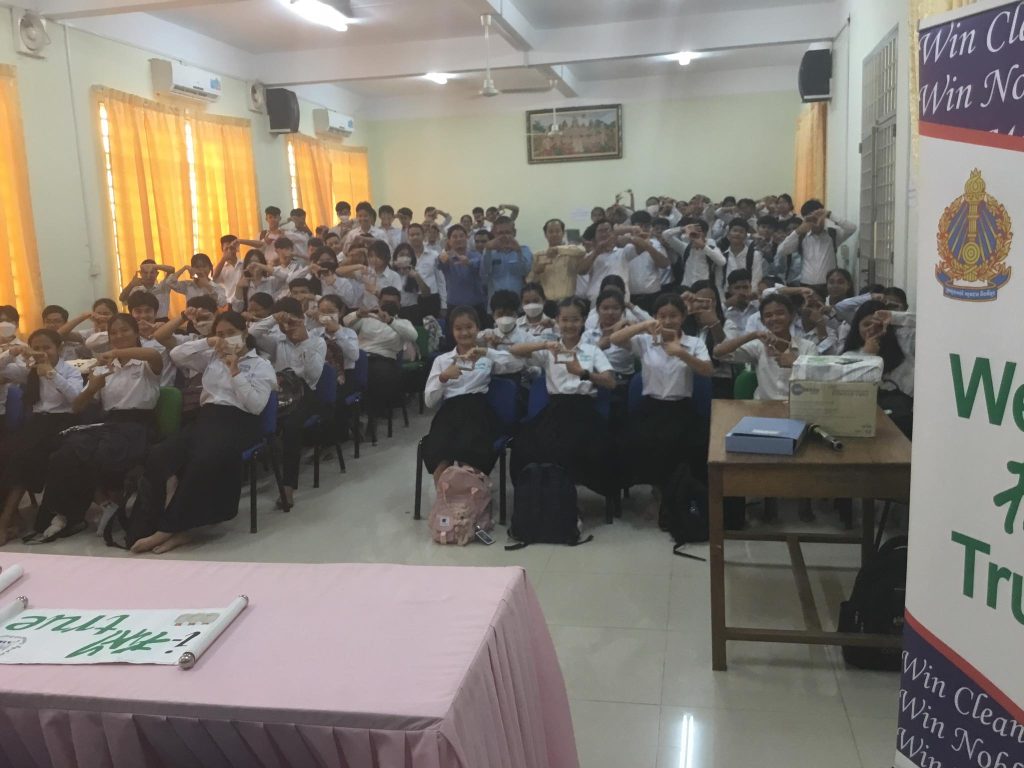
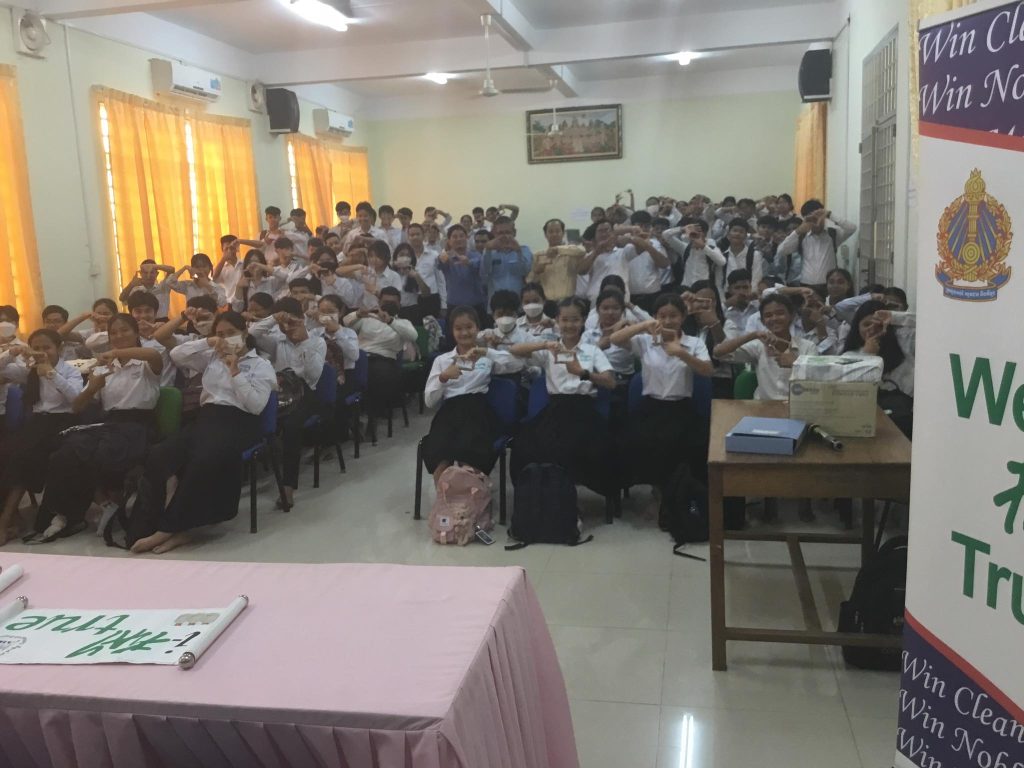
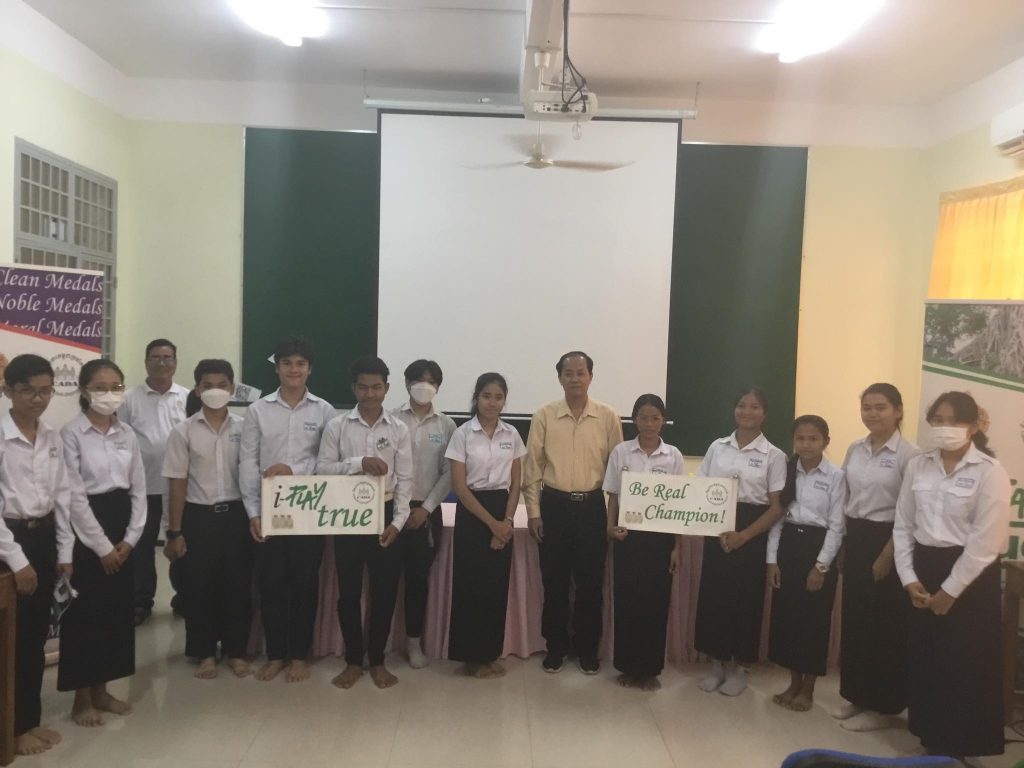

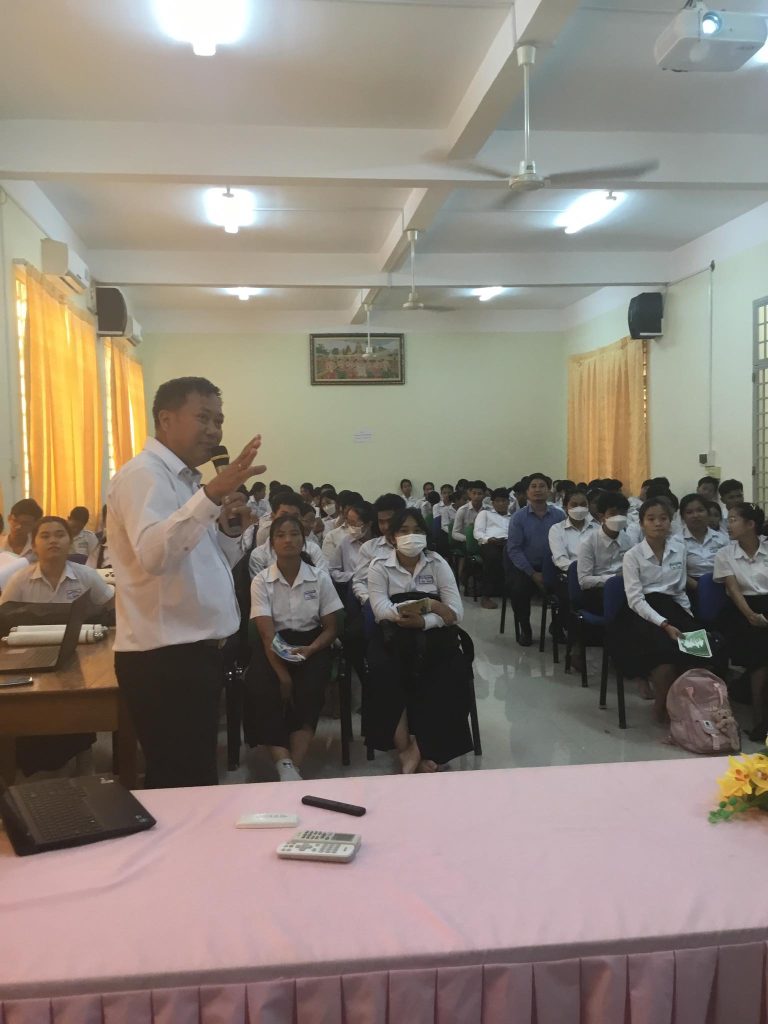
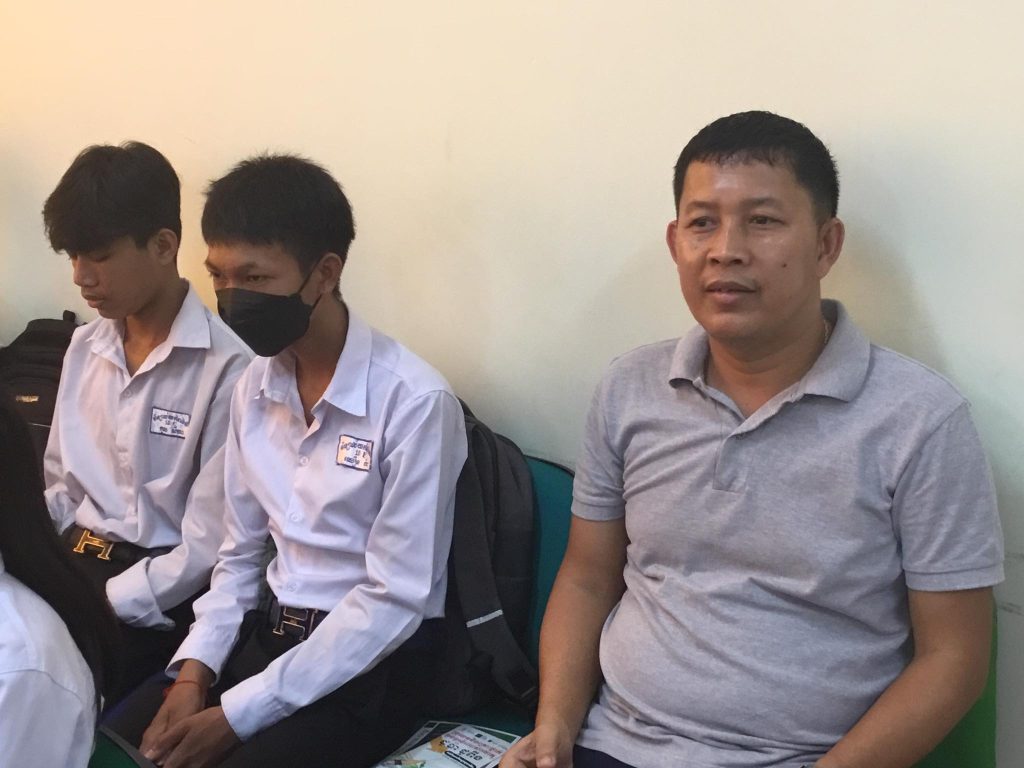
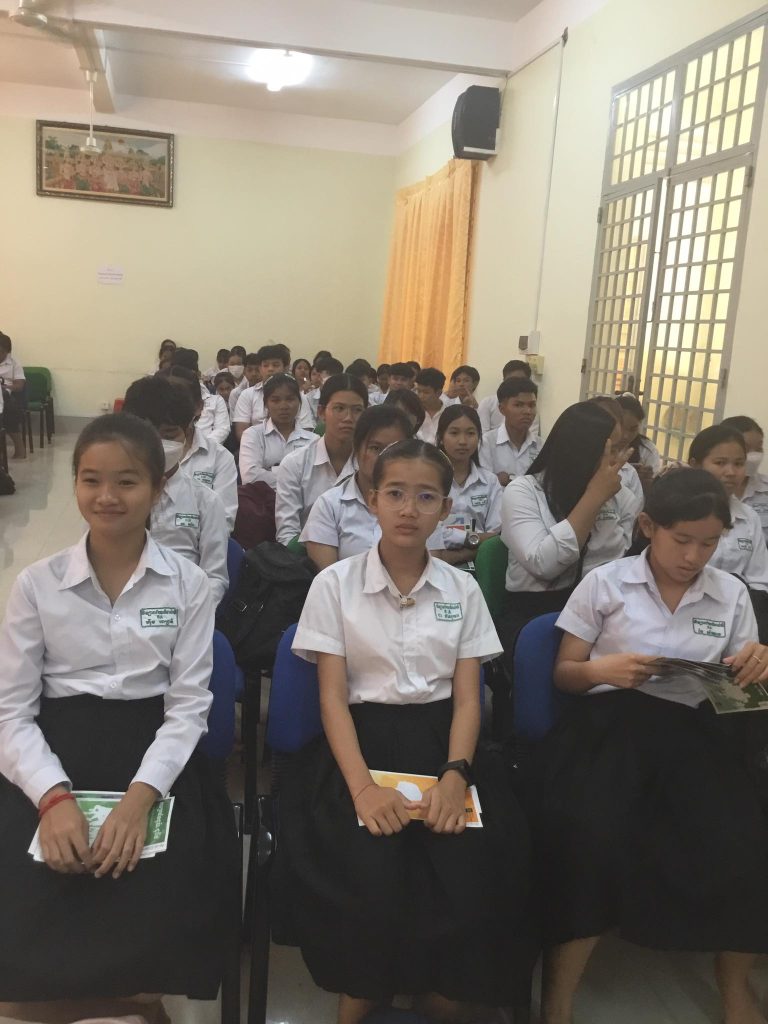
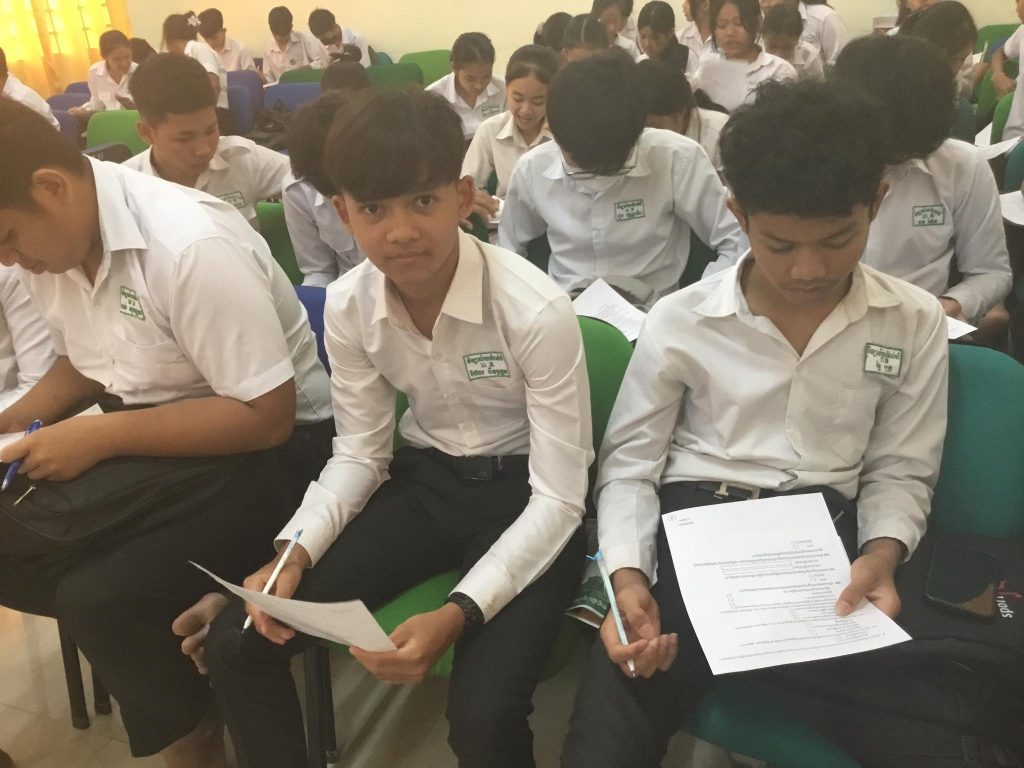
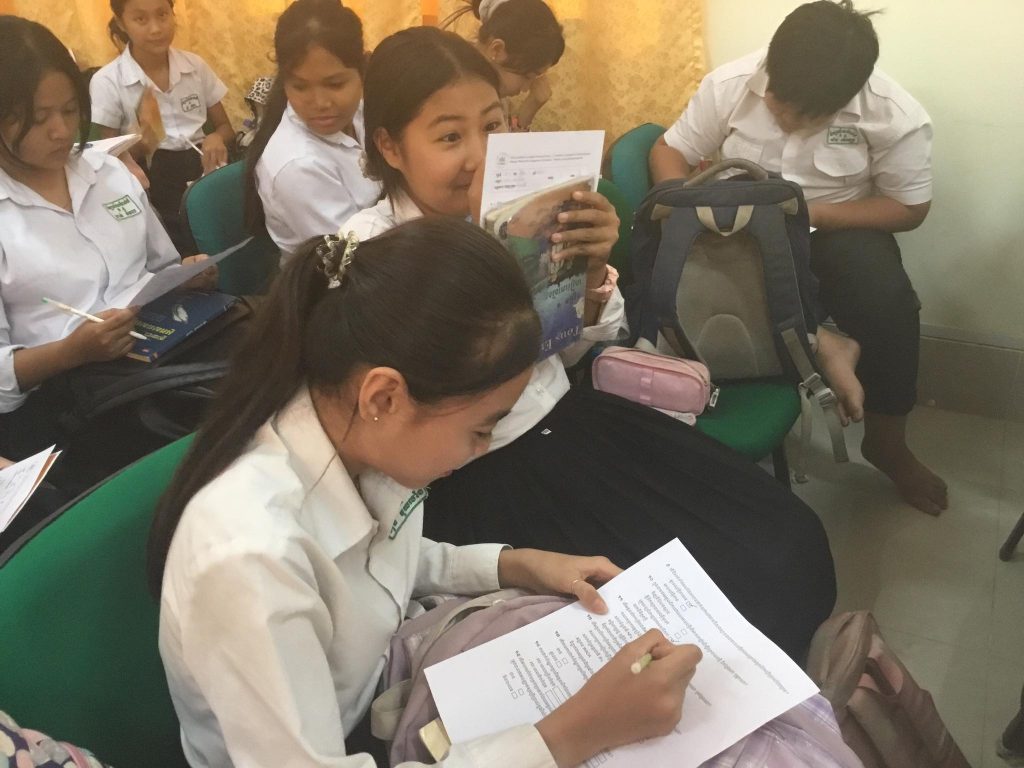
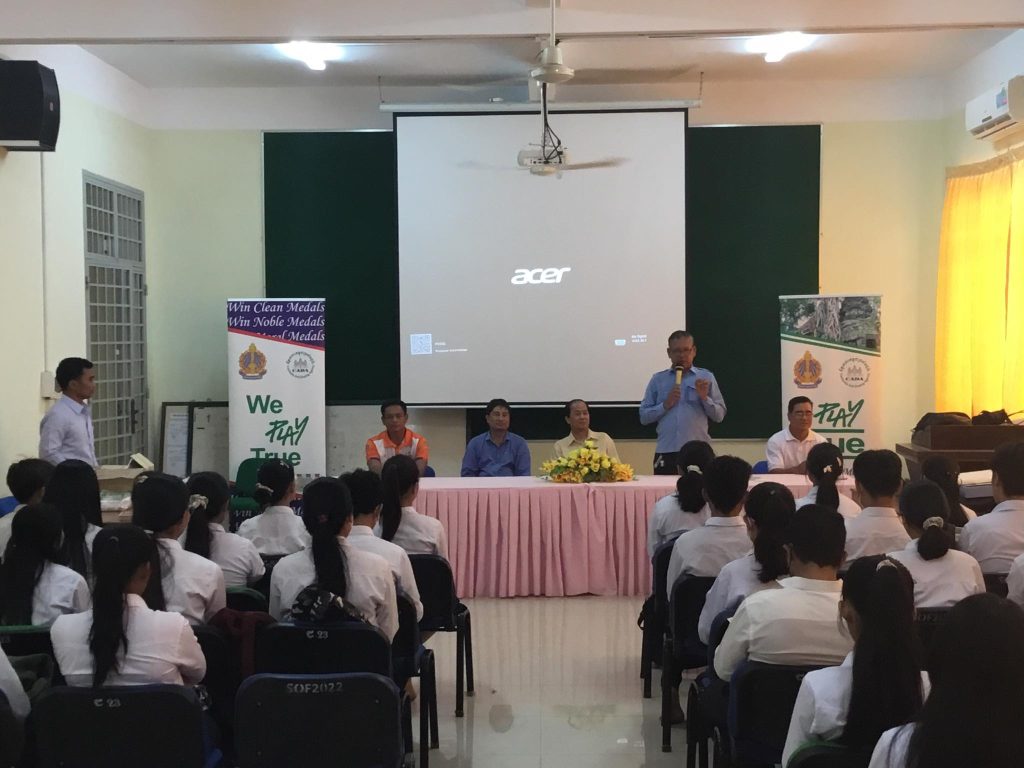


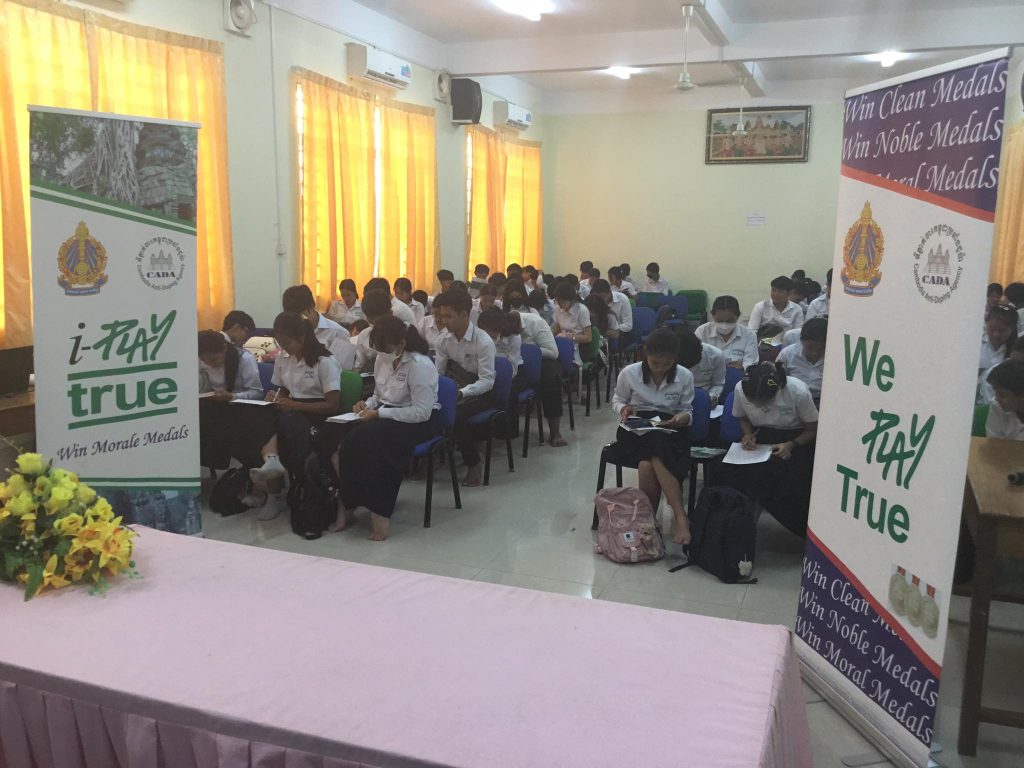
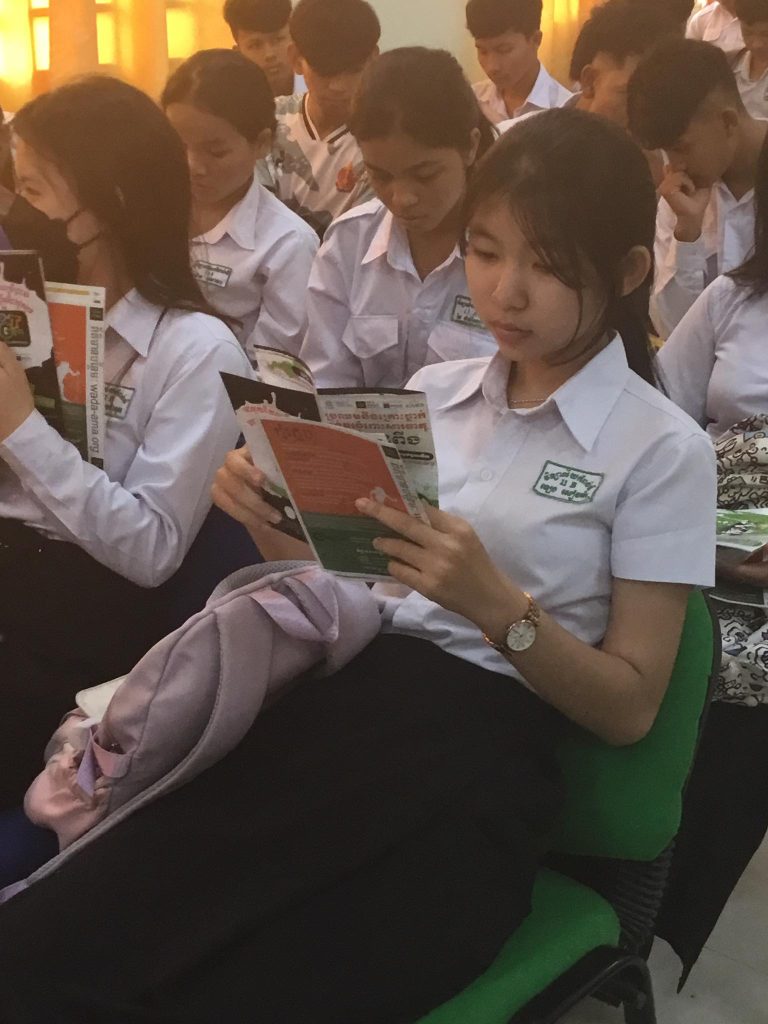

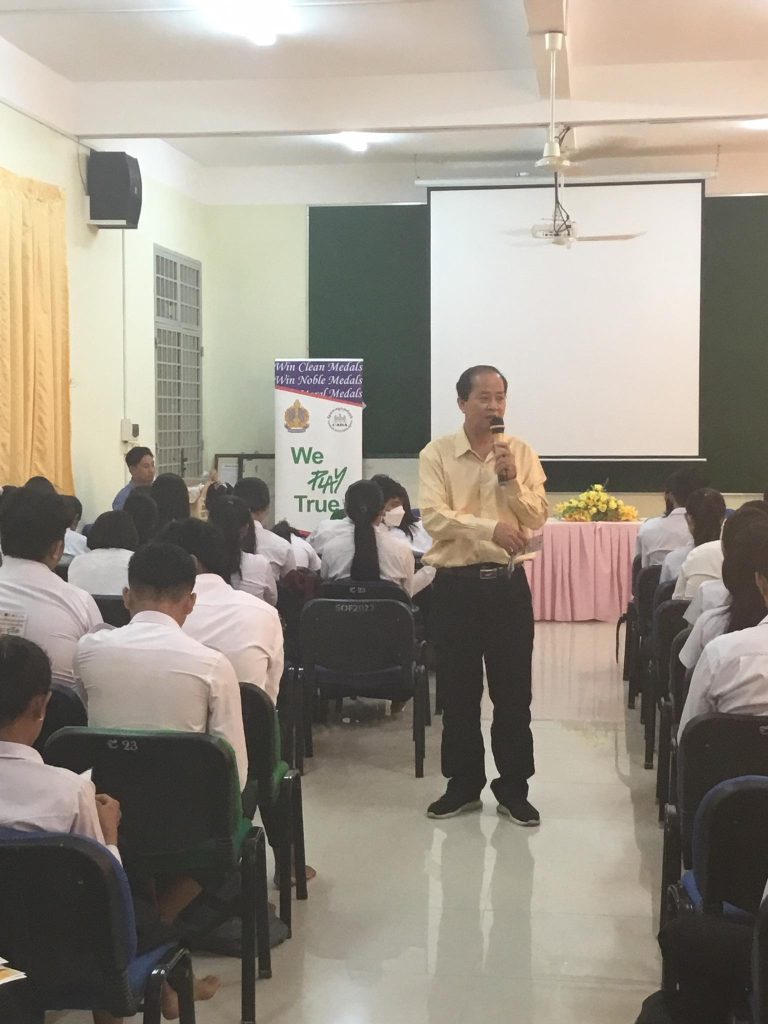
Education of Anti-Doping in sports to Sports Officers and PE Teachers in Kampong Thom province.
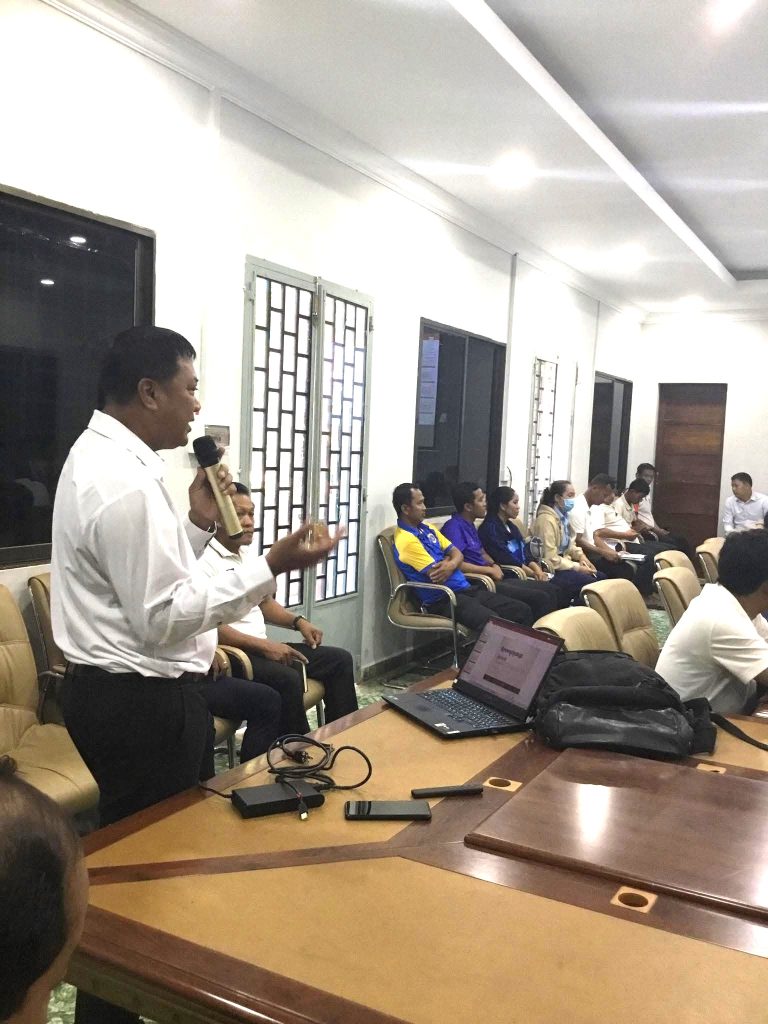
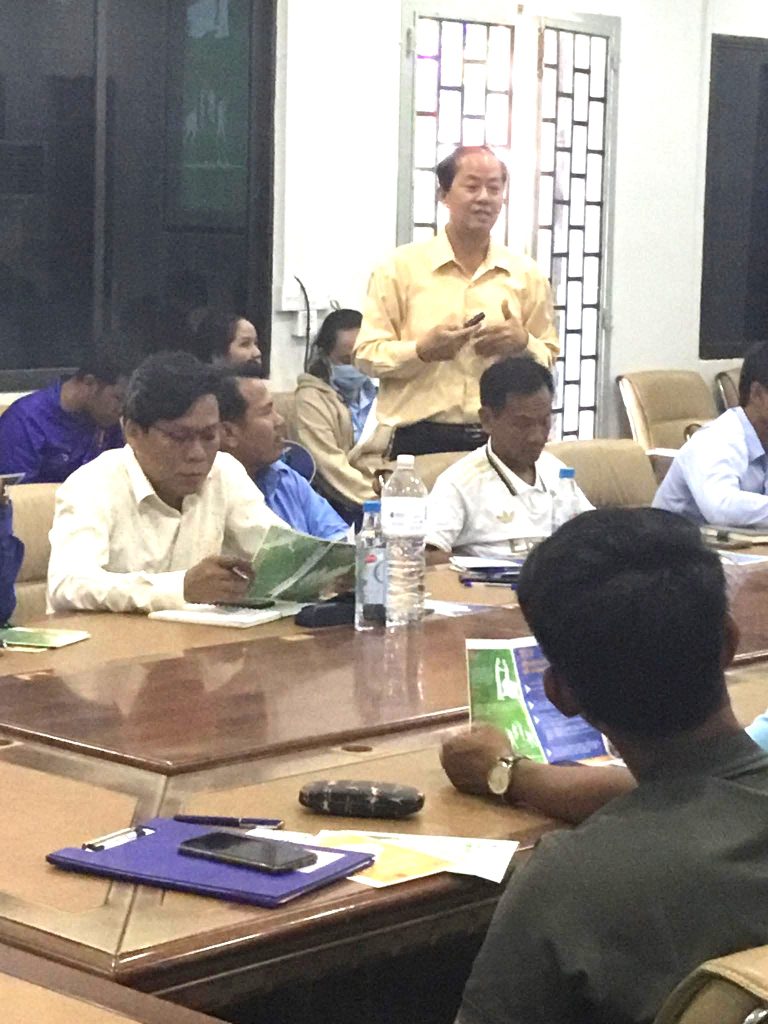
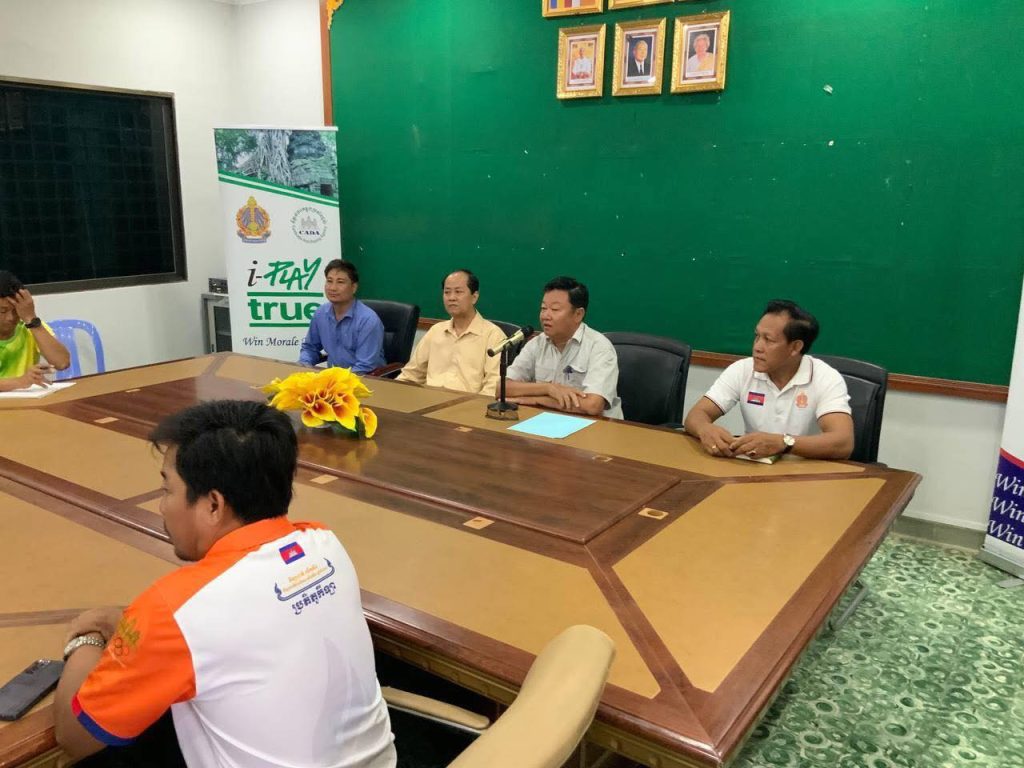
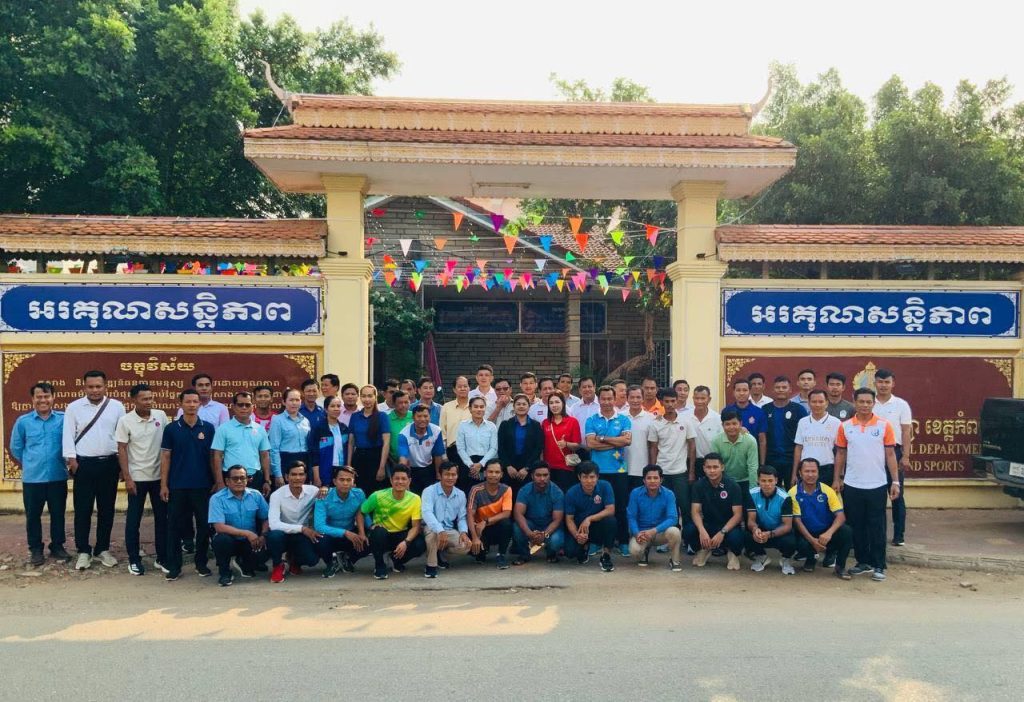
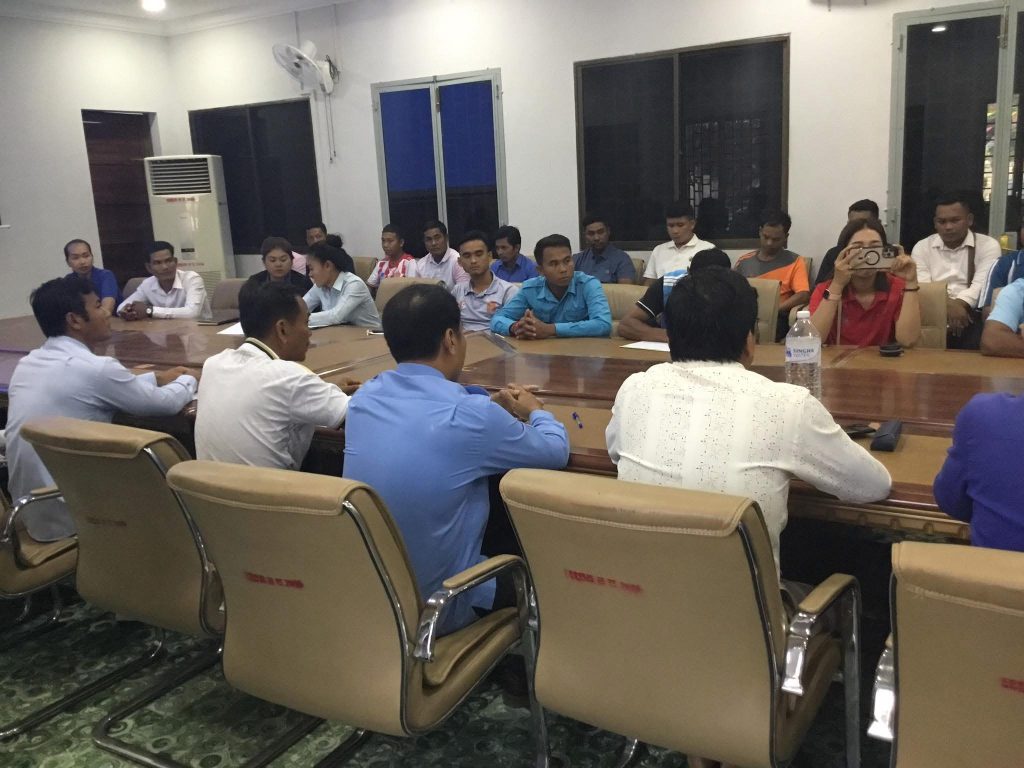
Athlete Support Personnel’s and other groups’ rights and Responsibilities under the code.
